




BY CINDY WOODEN
VATICAN CITY (CNS) – With many of the concrete, hot-button issues removed from the agenda and turned over to study groups, some people wonder what members of the Synod of Bishops on synodality will be doing when they meet at the Vatican in October.
For Pope Francis and synod organizers, though, taking issues like women deacons or seminary training off the table will allow the 368 synod members to focus on their main task: Finding ways to ensure “the church’s customs, ways of doing things, times and schedules, language and structures can be suitably channeled for the evangelization of today’s world rather than for her self-preservation.”
Cardinal Mario Grech, general secretary of the Synod of Bishops, cited that quote from Pope Francis’ 2013 exhortation, “The Joy of the Gospel,” when explaining what the three-year process of the synod on synodality was all about.

The working document for the synod’s second session Oct. 2-27 summarized as its task “to identify the paths we can follow and the tools we might adopt in our different contexts and circumstances in order to enhance the unique contribution of each baptized person and of each church in the one mission of proclaiming the Risen Lord and his Gospel to the world today.”
In the preface to a book on synodality, published in the Vatican newspaper
Sept. 24, Cardinal Grech wrote that the consultations held with Catholics around the world starting in 2021-2022 “noted, not without disappointment, the problem of a church perceived as an exclusive and excluding community – the church of closed doors, customs and tolls to be paid.”
“What needs to change is not the Gospel, but our way of proclaiming it,” he said.
The task of synod members – bishops, priests, members of religious orders and lay men and women – will be to better define or at least describe what is meant by synodality and to suggest ways to live out that vision.
Specifically, that means: helping people listen to one another and to the Holy Spirit; looking at relationships within the church and making sure they empower every member to take responsibility for the church’s mission; reaching out to people who have felt rejected or excluded by the church; increasing the accountability of people in leadership positions; ensuring parish and diocesan councils are truly representative and listened to; and increasing opportunities for women to place their gifts and talents at the service of the church, including in leadership and decision-making.
While those goals make sense from an organizational point of view, the Cath-
BY CATHOLIC NEWS HERALD
CHARLOTTE (OSV News) – Late Sept. 27 night, as the first photos and cries for help emerged after Tropical Storm Helene ripped through the North Carolina mountains, Father John Putnam texted his staff at St. Mark Church, in Huntersville:
“There’s a great need for supplies for diapers, canned goods and water in the mountains. We have folks that can deliver on Sunday. Can we get a blast out?”
By dawn on Saturday, Sept. 28, parishioners and neighbors who had seen the social media blast began dropping off supplies. By af-
ternoon, St. Mark had delivered its first truckload to the Statesville airport for transport to remote mountain regions. Remaining supplies went into a truck for church volunteers to drive 150 miles to Waynesville, home of St. John the Evangelist Parish.
In Concord, Dan Ward was on his way to Mass on Sunday morning when he fully understood how devastating Helene had been. As the properties and risk manager for the Diocese of Charlotte, Ward had the principal of Immaculata School on the phone describing the scene around her after record rainfall in Hendersonville.
“There is damage everywhere. Trees are down. Houses and roads are washed away. There is no power – and no water,” Principal Margaret Beale told him.
“It wasn’t just what she said – it was how she said it,” Ward recalled.





Over the next few hours, Beale’s hint of desperation and the trickle of news from the mountains – of people being swept down rivers, of homes washing away, of trees trapping people in neighborhoods with no way in or out – unleashed what would become an unprecedented outpouring of support from across the diocese “to get people what they need – now.”
That’s how Monsignor Patrick Winslow, the diocese’s vicar general and chancellor, described what he and Charlotte Bishop Michael T. Martin wanted to see in response to the storm. From the diocese’s central administration. From priests and parishioners. From Catholic Charities, and schools and ministries. Everybody who could help, should help.
“For those of you who are suffering so much from this natural disaster, especially those who have lost loved ones, please know you are not alone! Motivated by the image of Christ Crucified, we stand with you,




FLOWOOD – St. Paul, “Bee Attitudes” Women’s Retreat, Oct. 18-20 at Our Lady of Hope Retreat Center in Chatawa with Father Anthony Quyet. Ladies of St. Paul, come experience the Beatitudes from the perspective of Henry David Thoreau’s Walden and Paula D’Arcy’s A New Set of Eyes Details: email finance@spaulcc.org.
GREENWOOD – Locus Benedictus, Healing Retreat with Maria Vadia on Saturday, Nov. 9 from 10 a.m. to 3 p.m. The retreat is free; a love o ering will be taken. Details: call (662) 299–1232.
JACKSON – St. Richard, “Inspire” – a day retreat for women of all ages, Saturday, Nov. 2 from 8:30-3:30 p.m. in Foley Hall. Suggested donation: $30. Register by Oct. 15. Details: claudiaaddison@mac.com or (601) 594-3937.
OFFICE OF CATHOLIC EDUCATION – The OCE hosts a Zoom Rosary the first Wednesday of each month during the school year at 7 p.m. On Nov. 6, St. Elizabeth School will lead us in prayer. Join early and place your intentions in the chat. Details: Join the rosary via zoom at https://bit.ly/zoomrosary2024 or check the diocese calendar of events.
COLUMBUS – Annunciation, Fall Festival and Trunk or Treat, Sunday, Oct. 27 from 4-6 p.m. Have an amazing halloween experience for youth with trunk or treat, cake walk, games, contests, hall of saints, food and more. No pets. Details: church o ce (662) 328-2927.
FLOWOOD – St. Paul, Trunk or Treat, Saturday, Oct. 26 at 6:30 p.m. Details: church o ce (601) 9929547.
GLUCKSTADT – St. Joseph, Parish Picnic and Trunk or Treat, Saturday, Oct. 26 after 4 p.m. Mass. Details: church o ce (601) 856-2054.
GREENWOOD – Immaculate Heart of Mary, CYO Spaghetti Supper and Halloween Carnival, Monday, Oct. 28. Spaghetti supper available for drive-thru, carry out or dine in beginning at 4:30 p.m. Carnival
booths open at 5:30 p.m. and bingo at 6 p.m.
Cost: $15 Details: church o ce (662) 453-3980.
HERNANDO – Holy Spirit, “Hope – an Anchor in Today’s World” Study with Leanne Skinner Meng, Oct. 21 and 28; Nov. 4 and 11, in the Chapel Hall from 6:30-7:30 p.m. Snacks and refreshments provided. Registration fee: $6 for materials. Details: register at holyspirit-catholic.com or call (662) 429-7851 for more information.
Holy Spirit, Knights of Columbus Pumpkin Patch, open through Oct. 31, Monday – Saturday from 11 a.m. to 7 p.m. and Sunday from 12-7 p.m.
OLIVE BRANCH – Queen of Peace, Halloween Bash, Sunday, Oct. 27 at 5 p.m. Enjoy games, food trunk or treat and more. All are welcome. Details: church o ce (662) 895-5007.
Queen of Peace, 50th Anniversary Celebration for Deacon Mark White, Sunday, Nov. 10, Mass at 10 a.m. with Bishop Kopacz. Details: RSVP to queenop@ shsm.org.
MADISON – St. Francis, Trunk or Treat, Wedneday, Oct. 30. 6:30-8 p.m. Details: We need trunks –call or text Todd at (601) 809-6640 to participate.
NATCHEZ – St. Mary Basilica, Parish Dinner/ Halloween Fun, Wednesday, Oct. 16 at 6 p.m. in the Family Life Center. All are invited! Details: church o ce (601) 445-5616.
St. Mary Basilica, Fatima Rosary, Saturday, Oct. 26 at 12 p.m. in the prayer garden.
St. Mary Basilica, Knights of Columbus Spaghetti Dinner, Sunday, Oct. 27 from 11 a.m. to 1 p.m. in the Family Life Center. Dine-in or take-out (bring your own container). Tickets: $10. Details: Darren at (601) 597-2890.
SHAW – St. Francis, Spaghetti Dinner, Tuesday, Oct. 15 from 4-7 p.m. Drive-thru only at parish hall. Cost: $15, must be purchased in advance. Details: (662) 754-5561.
SOUTHAVEN – Christ the King, Adult Halloween Party, Saturday, Oct. 26, doors open at 6:30 p.m. Enjoy a night of dancing, food, fun, fellowship and fright in the social hall. Music by DJ Fernando. De-
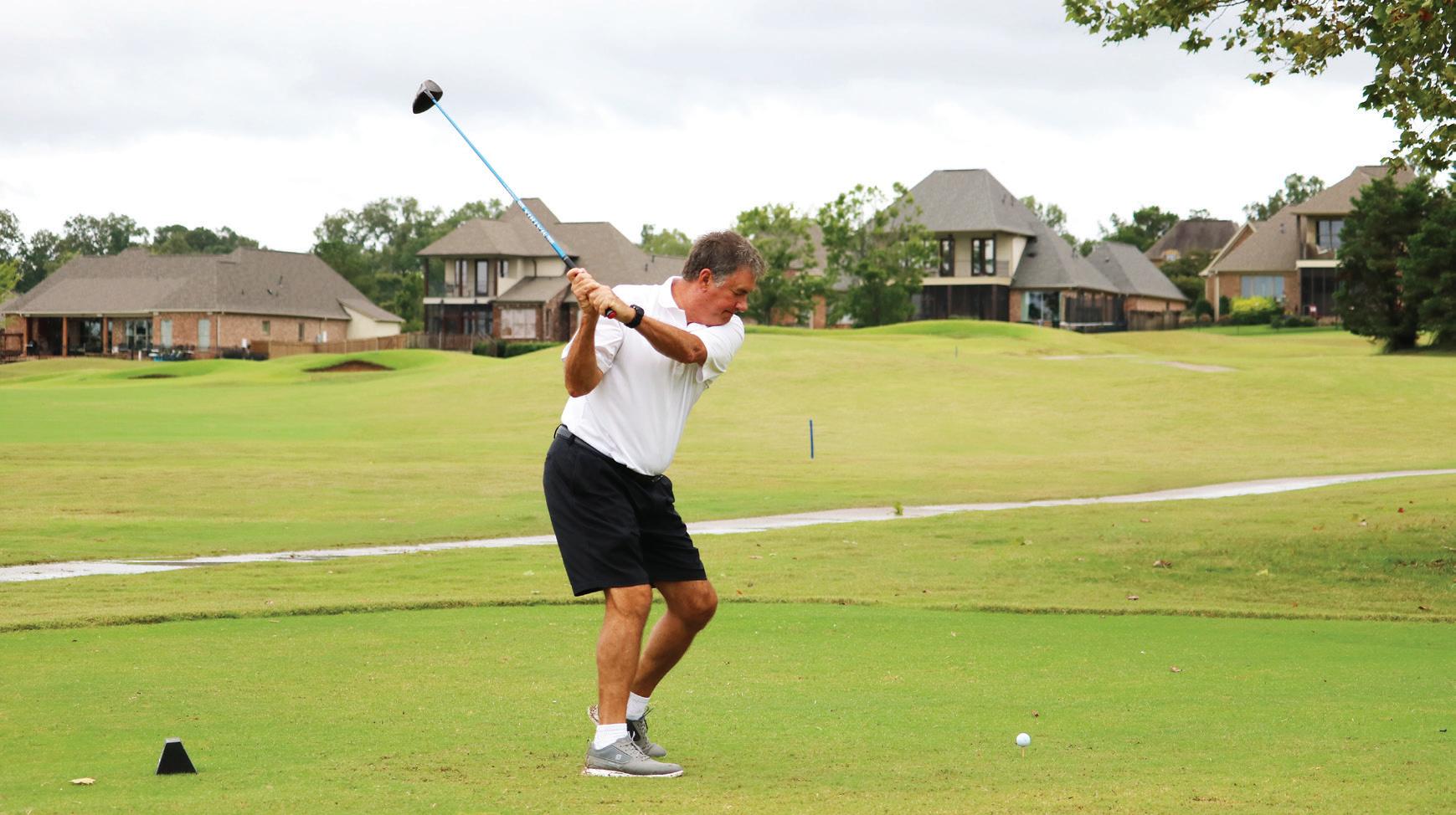
MADISON – A tropical storm didn’t keep golfers away from the 42nd Bishop’s Cup Golf Tournament held by The Catholic Foundation at Lake Caroline on Thursday, Sept. 12. The rains from downgraded Hurricane Francine moved on by the afternoon tee time, and golfers set off to win the Bishop’s Cup. Coming in with a score of 19 under par, the winning team was from St. Paul Flowood, sponsored by Tico Hoffman, consisted of Father Gerry Hurley, Dan Huffman and Hoffman. Pictured is Dan Huffman ready to drive his ball down the fairway. (Photo by Joanna Puddister King)
tails: church o ce (662) 342-1073.
Christ the King, Halloween Bash – for kids in grades K through fifth, Thursday, Oct. 31 from 6-8 p.m. Cost: one large bag of candy. Enjoy carnival games and more.
JOB OPENING – The Diocese of Jackson’s Office of Communications is looking for a full-time communications specialist. Role involves creating and promoting content across multimedia platforms, including social media, websites and promotional materials. The position requires strong communication skills, knowledge of Catholic teachings and proficiency in design and communication software. College degree required with two years experience. Send a cover letter and resume to joanna.king@ jacksondiocese.org no later than Oct. 25, 2024. If you would like a full job description, visit https://jacksondiocese.org/employment-1.
YOUNG ADULTS – Trivia on Tap, Tuesday, Nov. 5 at 7 p.m. at Blaylock Photography in Ridgeland. Guest speaker will be deacon candidate, Je Cook. Ages 21+ are welcome.
Camino de Santiago Pilgrimage, May 12-27. Father Lincoln Dall will be leading this once in a lifetime journey. Space is limited. Email amelia.rizor@ jacksondiocese.org for more information.
YOUTH – Diocesan SEARCH Retreat for tenth through twelfth graders, Jan. 17-19, 2025 at Camp Wesley Pines, Gallman. Diocese High School Confirmation Retreat, Jan. 25-26, 2025 at Lake Forest Ranch, Macon. Diocese Catholic Youth Conference – DCYC for ninth through twelfth grades, March 21-23, 2025 at the Vicksburg Convention Center. Details: contact your individual parish o ces or contact Abbey at (601) 949-6934 or abbey.schuhmann@jacksondiocese. org.
CATHOLIC ENGAGED ENCOUNTER – CEE is our diocesan marriage prep program for couples preparing for the sacrament of marriage. The upcoming weekends for 2025 are: Feb. 21-23, 2025; August 1-3, 2025; and Oct. 24-26, 2025 at Camp Garaywa in Clinton; and April 25-27, 2025 at Lake Tiak-O’Khata in Louisville. Register at https://bit.ly/CEE2024-2025. Details: email debbie.tubertini@jacksondiocese.org.
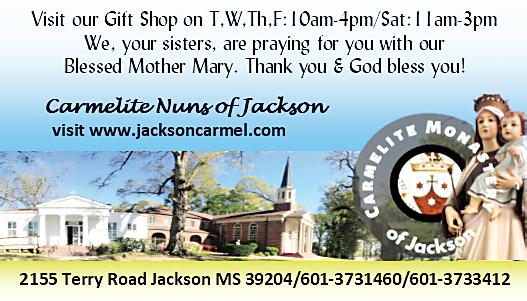
BY BISHOP JOSEPH R. KOPACZ, D.D.
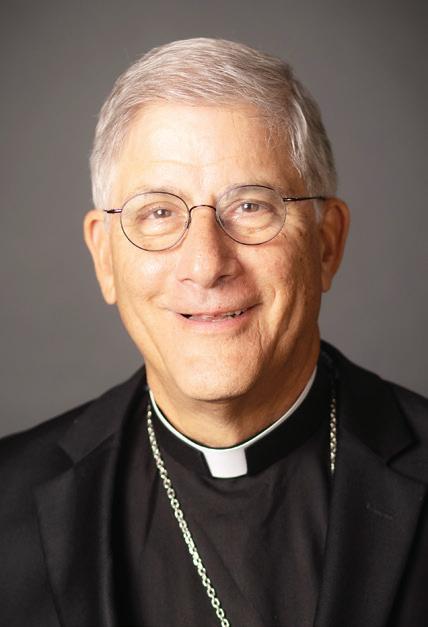
In the heart of the month of October dedicated to human life at every stage, i.e. the dignity of the human person as the corner stone for the common good, the church also raises up the struggles that surround mental health. The National Catholic Mental Health Campaign is a year-round initiative, and each year, the U.S. Bishops engage in a concerted e ort beginning on World Mental Health Day, Oct. 10 (since 1992), and continuing to the feast of St. Luke, patron of health care (Oct. 18). During this concentrated period three primary goals are promoted: (1) to raise awareness of the mental health crisis, (2) to combat stigma surrounding the topic of mental health, and (3) to advocate for all those impacted by the crisis. The message of the campaign is straightforward: Everyone who needs help should receive help.
Our nation faces a dire mental health crisis. According to the Center for Disease Control and Prevention, more than one in five adults live with mental illness. Apparently, half of Americans are expected to have some form of mental illness during their lifetime. Yet, it retains a pernicious stigma. It can interfere with individuals seeking treatment and finding an understanding community to support them.
A review of data from 144 studies of participants
September 15
Father Bill Henry Retired
Thank you for answering the call!





P.O. Box 2130 Jackson, MS 39225-2130
Phone: 601-969-3581 E-mail: editor@jacksondiocese.org
from around the world revealed that the stigma of mental illness remains one of the top barriers to accessing mental health care. There is particular concern about the mental health state of adolescents. Almost all indicators of poor mental health among high schoolers increased over the past decade. In 2021, 42% of students experienced persistent feelings of sadness or hopelessness, up from 28% a decade earlier. 22% seriously considered attempting suicide, up from 16%, and 18% made a suicide plan, up from 13%.
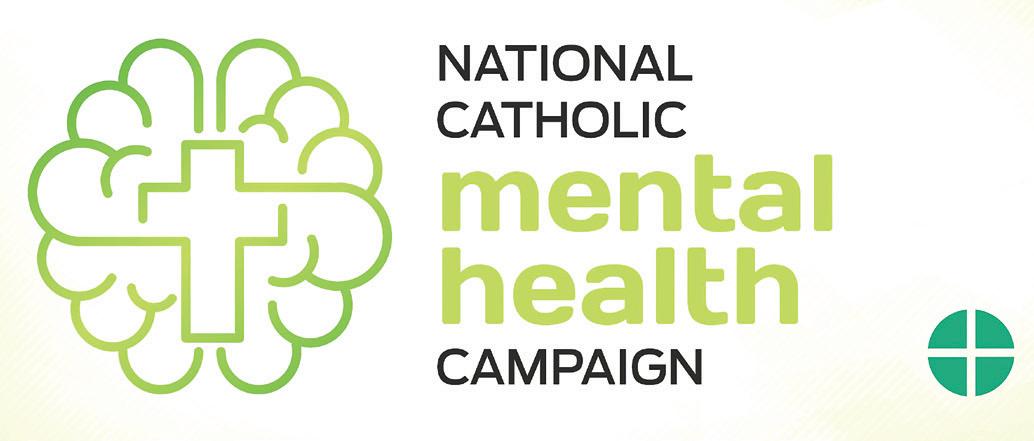
a new horizon” to people struggling with mental illness.” She is qualified to speak for the church at home and abroad. While society must be active in addressing mental health issues, she explained that the church has a “unique di erentiating element, because it is motivated by faith, with a dimension of hope and recognition that each person is more than their illness and has human dignity. When there is a mental health problem, it is not only the mind that is ill, but also all the being, the entire sense of life,” she said.
The U.S. Conference of Catholic Bishops has invited the faithful to participate in an Oct. 10-18, 2024, novena for mental health, as part of the second year of its National Catholic Mental Health Campaign. (OSV News photo/courtesy USCCB)
The data further reveals disparate mental health outcomes based on race. It further shows that while boys and girls are su ering deeply, they can face distinct challenges. The data is also troubling regarding a disproportionate number of individuals who identify as LGBTQ who face mental health di culties. “As a church we must pay particular attention to these di erences in our pastoral work and advocacy e orts,” the U.S. Bishops encourage. Compounding this issue is the shortage of mental health resources in far too many communities in our nation.
We are not alone in this struggle as mental distress spans the globe. The World Health Organization estimates nearly a billion people are living with a mental disorder worldwide. Global rates of depression and anxiety increased by more than 25% in the first year of the pandemic, according to the World Health Organization. Sister Carneiro, the new superior general of the Sisters Hospitallers, who serve nearly 1 million people with mental disorders across 25 countries, told Catholic News Service that the church “has an important role of hope, of o ering
Volume 70 Number 18 (ISSN 1529-1693)

Publisher Bishop Joseph R. Kopacz
Communications Director Joanna Puddister King
Production Manager Tereza Ma
MISSISSIPPI CATHOLIC is an official publication of the Diocese of Jackson, 601-969-1880, 237 E. Amite St., Jackson, MS 39201. Published digitally twice per month January – April and September – December; once per month June, July and August. Mississippi Catholic mails 14 editions per year – twice per month in December and January; and once per month February –November. For address changes, corrections or to join the email list for the digital edition, email: editor@jacksondiocese.org. Subscription rate: $20 a year in Mississippi, $21 out-of-state. Periodical postage at Jackson, MS 39201 and additional entry offices. POSTMASTER: Send address changes to Mississippi Catholic, P.O. Box 2130, Jackson, MS 39225-2130.
Website: www.mississippicatholic.com www.jacksondiocese.org
“For the church and for us as a congregation, what is most important is to help vulnerable people who are su ering to again find a sense of life and hope.” Her message resonates well with the impending jubilee year whose theme is a Jubilee of Hope
The USCCB recommends that each U.S. parish promote the annual novena within their communities. The novena o cially goes from October 10 to 18, 2024. The daily texts for the novena can be found online at https://www.usccb.org/mentalhealth. First and last, may we never overlook the power of prayer in the service of health and hope.
For all the individuals who are impacted by issues of mental health, especially within our local community, that God may bless them with his grace and consolation, and that Catholics everywhere will accompany and support women and men and children who experience mental health challenges and promote mental and spiritual wellness. We pray through Christ our Lord, Amen
Tuesday, Oct. 15 and 22, 7:30 a.m. – Mass, Carmelite Monastery, Jackson
Saturday, Oct. 19, 11 a.m. – Confirmation, St. Anne, Carthage
Sunday, Oct. 20, 10 a.m. – 75th Anniversary Mass and Celebration, St. Francis, New Albany
Sunday, Oct. 20, 4 p.m. – Confirmation, Christ the King, Southaven
Saturday, Nov. 9, 11 a.m. – 75th Anniversary Mass, Holy Family School, Holly Springs
Saturday, Nov. 10, 10 a.m. – 50th Anniversary Celebration and Mass for Deacon Mark White, Queen of Peace, Olive Branch
Nov. 11-15 United States Conference of Catholic Bishops (USCCB) Fall Plenary Assembly, Baltimore, Maryland
Sunday, Nov. 24, 9 a.m. – Christ the King Feast Day Celebration, Christ the King, Jackson
Tuesday, Nov. 26 – Thanksgiving Meal, Parchman Penitentiary
All events are subject to change. Check with parishes for further details.
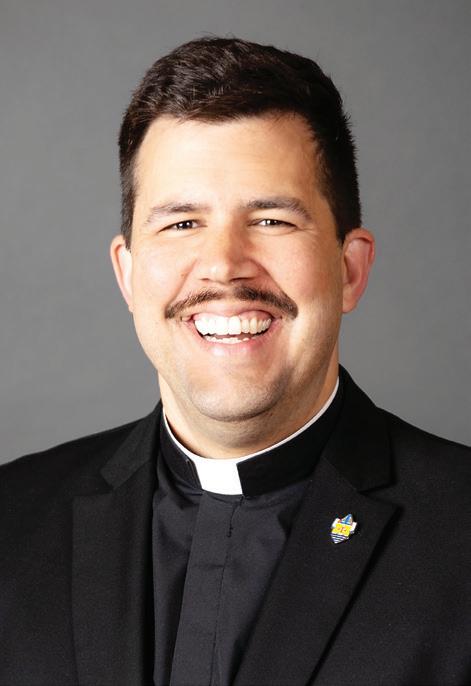
In the first few months of our new partnership with Vianney Vocations, we can already see some big changes and very encouraging signs. Four discernment groups are up and running with about 30 men who want to learn more about diocesan priesthood taking part. In my five years as vocation director, the largest discernment group I can remember had 8-9 guys, and there was just one of them, and that group was only for men in the Jackson area. Now we have four groups in four different locations (Cleveland, Jackson, Oxford and Starkville). This is tangible evidence that there are many more young men who are open to the call to priesthood and who can benefit from accompaniment. Accompanying more men means that more men will apply for seminary and more seminarians means more future priests.
The next step in our accompaniment is to offer ‘Come and See’ opportunities to our discernment group members and other discerners. In mid-October Father Tristan Stovall is taking about eight men to the seminary in New Orleans and then in early November we will be bringing many more to St. Joseph Seminary College in Covington, Louisiana for their bi-annual ‘Come and See’ weekend. That weekend, Nov. 9-10, will also be a big weekend in our diocese. We are going to invite every priest in the diocese to share their vocation story at each Mass that weekend. We will also ask you to consider whether there are young men in your parish who you think would make great priests and could benefit from taking part in these new programs that we are offering. This ‘Called by Name Weekend’ will help us get even more participation in our discernment groups. If we have 30 or so men just from our personal contacts and conversations, think about what the Lord could do with everyone in the diocese calling forth men to seriously discern whether they have a call to be a priest in our diocese. I am very excited about this!
I will be briefing all our clergy and lay ecclesial ministers about this effort at our upcoming Continuing Formation Workshop, so they have all the information they need to help roll this out. Once we get names submitted the staff at Vianney is going to help Bishop Kopacz, myself and the vocations team reach out to all the men who are put forward to invite them to discern a little more formally and take part in these discernment groups and seminary visits. I’m grateful to the vocations team, our staff here at the diocese including our vocations staff, and Father Tristan (who has been an amazing source of new ideas and energy as assistant vocation director). I’d also like to thank all the generous donors from across the diocese who are supporting the Homegrown Harvest Festival Oct. 12. I look forward to discussing these exciting developments with them that evening!

By Karla luKe
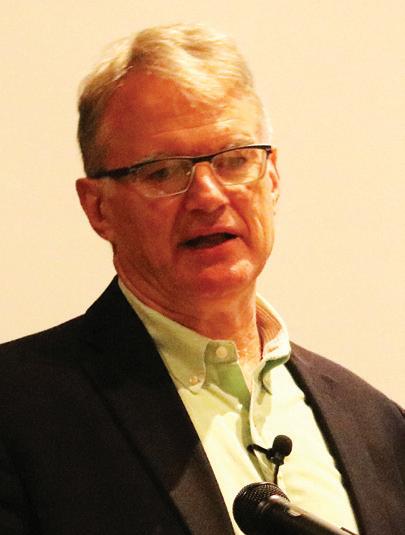
On Sept. 3, the Diocese gathered for the annual day of worship and professional development hosted by the Office of Catholic Education. This much-anticipated event brought together over 400 faculty, staff and administrators from across the diocese to celebrate Catholic education and renew their mission in nurturing faith and academic success among students. Held on the Tuesday after Labor Day, the day began with a Mass celebrated by Bishop Joseph Kopacz in the Fine Arts Building at St. Joseph School in Madison, coinciding with the Memorial of St. Gregory the Great – one of the patron saints of educators. Dr. Timothy Hogan, a licensed clinical psychologist, speaker and author, was the keynote speaker for the day. Known for his expertise in the impact of technology and culture on spirituality, Dr. Hogan delivered a powerful and engaging presentation based on the diocesan theme of “Faith, Hope and Love.” His talk, “Faith, Hope and Love: Proven, Practical Ways to Cultivate Love,” inspired educators to deepen
their own spiritual lives while guiding students to do the same. Drawing from his latest book, The Gift of Cultural Hurricanes: Tools to Rebuild Authentic Spirituality, Dr. Hogan shared insights on how educators can positively influence the faith of their students through their own authentic example.
Dr. Hogan emphasized the importance of strong attachment and connection between teachers, caregivers, and students, highlighting the role of educators in modeling faith and empathy. He discussed the challenges faced by young people today, particularly the pervasive impact of technology on their ability to process emotions and develop spiritually. Referencing data from 2013, when average smartphone usage was 18 minutes per day, compared to today’s staggering 6.5–8.5 hours per day, Dr. Hogan made clear the need for educators to be present, empathetic, and engaged in helping students navigate these challenges.
His message also spoke to the well-being of educators, encouraging them to slow down and be present in the moment, quoting St. Teresa of Avila: “Whoever possesses the present moment possesses God.” Dr. Hogan offered practical advice for fostering mindfulness in the classroom, such as beginning with a check-in to help students connect with their feelings and modeling emotional awareness in an age-appropriate manner. He urged educators to maintain a positive mindset, treat themselves with grace, and find solace in prayerful, rhythmic breathing.
After a shared meal, attendees broke into groups
based on their roles in their schools to discuss how they could implement these ideas in their work. The day concluded with group sharing, where educators reflected on the insights gained and ways to support each other.
Feedback from participants was overwhelmingly positive. Many appreciated Dr. Hogan’s engaging style and the practical tools he offered for the classroom and beyond. Comments included: “My favorite thing about today was the speaker. He was amazing. He really engaged everyone in his presentation,” and “Not only telling us the issues we are seeing but helping us find ways to do something about it!” Educators also valued the opportunity to collaborate with their counterparts from other schools across the diocese.
The Office of Catholic Education extends its gratitude to Dr. Dena Kinsey and the staff of St. Joseph School for hosting, and to the Chancery staff for their ongoing support. A special appreciation goes to Rachel Patterson and Virginia Hollingsworth, for their dedication in organizing the event.
Finally, we honor all our teachers who, day in and day out, dedicate themselves to ensuring that our children are not only prepared for academic success but also develop a deep and lasting relationship with Christ. Their commitment to our mission is extraordinary, and they are truly our heroes.
(Karla Luke is the executive director of Catholic Schools for the Diocese of Jackson)
By Father ron rolheiser, oMi
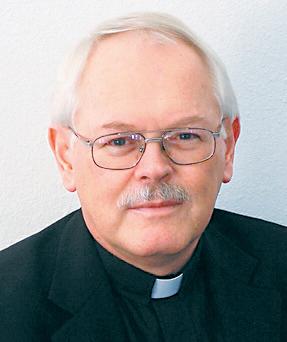
Several years ago, at a time when the national news was much fixated on a high-profile case of sexual harassment, I asked three women colleagues: “what constitutes sexual harassment? What’s the line here that may not be crossed? What’s innocent behavior and what’s harassment?” They answered to this effect. It’s not so much a question of a clear line, a certain remark or behavior that goes too far. Rather, we know what is innocent and what is not. We can read the energy beneath the behavior. We know when it’s harassment and when it’s not.
I have no doubt that in most instances this is true. All of us have very perceptive inner radar screens. We naturally feel and read the energy in a room – tension, ease, jealousy, affirmation, innocence, aggression. You see this already in very young children, even babies, who can sense ease or tension in a room.
It is interesting that the great Carmelite mystic John of the Cross, draws on this notion when he writes on discernment in spiritual direction. How, he asks, do you discern if a person is in a genuine dark night of the soul (a healthy thing) or whether he is sad and down because of an emotional depression or because of bad moral behavior? John elaborates a number of criteria for discerning this, but ultimately they all come down to reading the energy that the person is radiating. Are they bringing oxygen into the room or are they sucking the oxygen out of the room? Are they depressing you as you listen to them? If yes, then their issue is not spiritual nor healthy. People who are in an authentic dark night of the soul, irrespective of their personal interior struggle, bring positive energy into a room and leave you inspired rather than depressed.
My purpose in sharing is not for us to become more critical and start judging others by trying to consciously read the energy they are radiating. (We are already unconsciously doing that.) What I want to highlight rather, as a challenge, is for each of us to more consciously examine ourselves vis-à-vis what energy we are bringing into a room and leaving behind.
Each of us needs to courageously ask: what energy do I bring into a room? What energy do I bring to the family table? To a community gathering? To those with whom I discuss politics and religion? To my colleagues and fellow workers? To the social circles within which I move? And more deeply, as a parent or as an elder, what energy am I habitually bringing to my children and to the young? As someone teaching or doing ministry, what energy am I radiating as I try to lead others?
That’s a critical question. What energy am I habitually bringing into a room and leaving behind? Frustration? Anger? Chaos? Jealousy? Paranoia? Bitterness? Depression? Instability? Or am I bringing and leaving behind some stability, some sanity, some joy of heart, some energy that blesses rather than curses others? Ultimately, what am I leaving behind?
When Jesus is giving his farewell speech in John’s Gospel, he tells us that it is better for us that he is going away because otherwise we will not be able to receive his spirit; and that his spirit, his final gift to us, is the gift of peace. Two things should be noted here: first, that the disciples
couldn’t fully receive what Jesus was giving them until he had gone away; and second, that ultimately his real gift to them, his real legacy, was the peace he left behind with them.
What may seem strange at first glance is that his followers could only fully inhale his energy after he had gone away and left them his spirit. That is also true for each of us. It is only after we leave a room that the energy we left behind is most clear. Thus, it is after we die that the energy we have left behind will constitute our real legacy. If we live in anger and bitterness, in jealousy and unwillingness to affirm others, and if our lives sow chaos and instability, that will be what we ultimately leave behind and will always be part of our legacy. Conversely, if we are trustworthy and live unselfishly, morally, at peace
with others, bringing sanity and affirmation into a room, then, like Jesus, we will leave behind a gift of peace. That will be our legacy, the oxygen we leave on the planet after we are gone.
And this is not a question of who can best light up a room with humor and banter, good as these can be. It is rather a question of who has enough personal integrity so as to bring trust and stability into a room?
Given all this, it’s good to ask oneself: when I enter a room am I bringing some oxygen into that room or am I sucking some oxygen out of that room?
(Oblate Father Ron Rolheiser is a theologian, teacher and award-winning author. He can be contacted through his website www.ronrolheiser.com.)
Pope prays for collaboration: ‘Priests are not the bosses of the laity, but their pastors’
By Justin Mclellan
VATICAN CITY (CNS) – Every Christian, whether a layperson or member of the clergy, has a vital role to play in advancing the mission of the church through collaboration, Pope Francis said.
“We priests are not the bosses of the laity, but their pastors,” he said in a video message for his October prayer intention: “For a shared mission.”
Christians are called to follow Jesus not with “some people above others or some to one side and the rest to another side, but by complementing each other,” the pope said in the message released by the Pope’s Worldwide Prayer Network Sept. 30. “We are community. That is why we must walk together on the path of synodality.”
The network posts a short video of the pope offering his specific prayer intention each month, and members of the network pray for that intention each day.
In addition to coinciding with the month that includes World Mission Sunday, the pope’s message was delivered as 368 members of the Synod of Bish-
ops began a two-day retreat ahead of the second session of the synod in Rome. The synod, focusing on synodality, gathers bishops and other experts from around the world to discuss how to create a more listening church.
Pope Francis suggested that a bus driver, a farmer or a fisher might wonder what role he or she can play in the church’s mission of evangelization. But “what all of us need to do is to give witness with our lives. Be co-responsible in mission,” he urged.
“The laity, the baptized in the church, are in their own home, and they must take care of it. So do we priests and consecrated people,” the pope said. “Everyone contributes what they know how to do best.”
“We are co-responsible in mission, we participate and we live in the communion of the church,” he said, asking for prayers so that the church may “continue to sustain a synodal lifestyle in every way, as a sign of co-responsibility, promoting the participation, communion and mission shared by priests, religious and laity.”
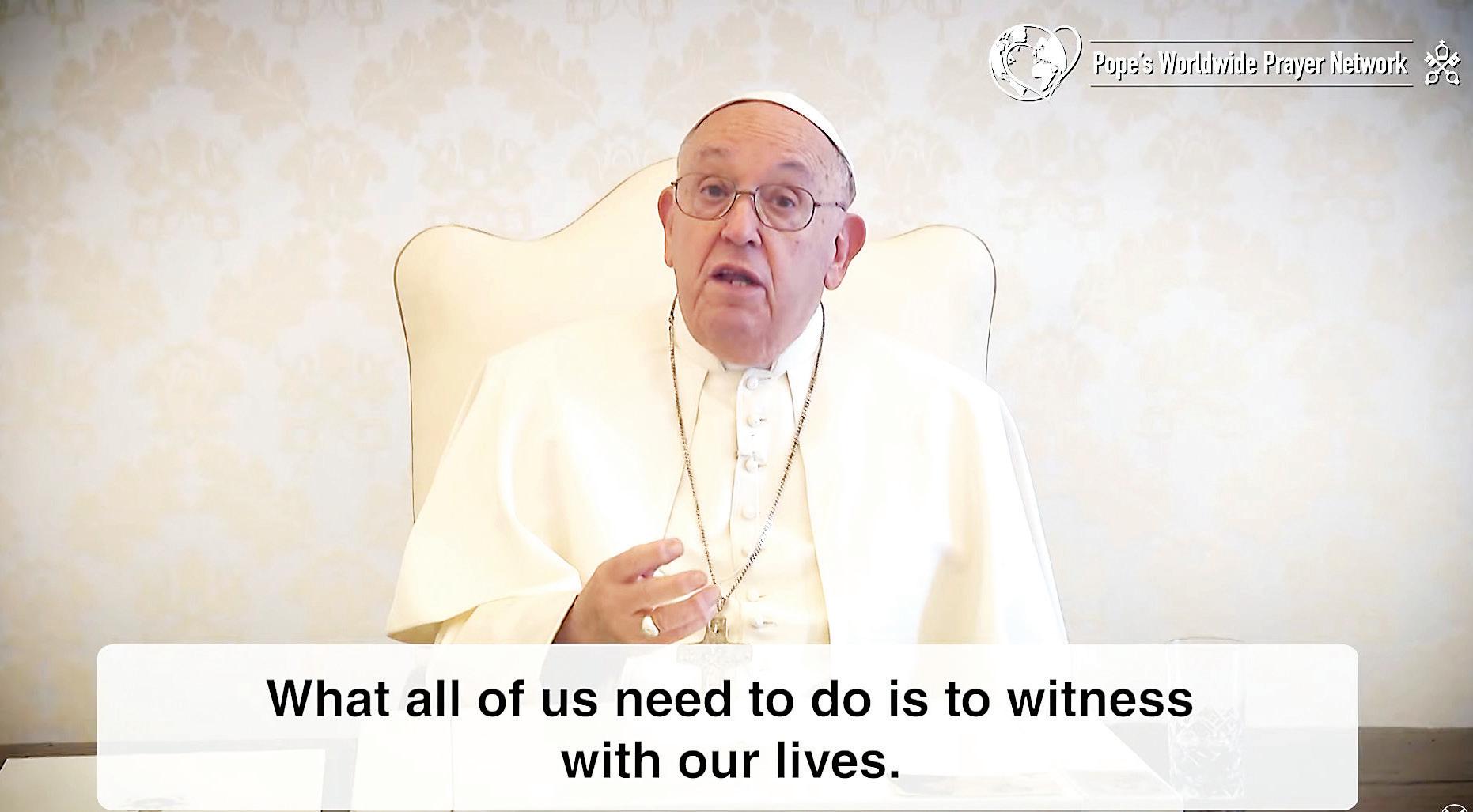
Pope Francis discusses his October prayer intention, “For a shared mission,” in a video message released by the Vatican Sept. 30, 2024. (CNS screengrab/Pope’s Worldwide Prayer Network)
‘... synod’s discernment involves listening to each other and to the Holy Spirit ...’
– Continued from page 1 –
olic Church sees itself as the body of Christ, not an organization, and it has traditionally tied the task of governance and decision-making to ordination. How that authority is exercised can vary according to church, country and culture. Synod members come from more than 110 countries and from 15 of the Eastern Catholic churches.
Part of the synod’s discernment involves listening to each other and to the Holy Spirit in respecting people’s traditions with a small “t,” while also being open to something new. Pope Francis’ frequent observation that the Holy Spirit takes diversity and from it creates harmony, not uniformity, is a test for a church that is universal while also incredibly varied.
In the same text published by the Vatican newspaper Sept. 24, Cardinal Grech wrote, “While traditionally Catholicism has focused more on the ‘singular,’ identifying in unity ‘cum et sub Petro’ (‘with and under Peter’) a
‘...Walk with
safeguard against dispersion and error, today we feel the need to rebalance the discourse by making space for the ‘plural,’ so that unity does not degenerate into uniformity, extinguishing the imagination of the Holy Spirit, who scatters seeds of truth and grace in the different peoples and in their varied cultures.”
Cardinal Grech also insisted that the synod’s criticism of “clericalism,” like Pope Francis’ criticism of it, does not come from some “philosophical or political egalitarianism” but from “missionary anxiety.”
“In fact, by sapping the potential of lay men and women in the work of evangelization, clericalism weakens mission, making the church more fragile in the face of the challenge of sharing the Gospel in the world,” the cardinal wrote.
Clericalism restricts evangelization to the clergy, he said, and it “leaves the ‘simple’ baptized in a position of passivity as if the missionary mandate of the Risen Lord did not apply to them as well.”
– Continued from page 1 –
we love you, and we are lifting you up in constant prayer,” Bishop Martin wrote Oct. 2 in an email to the faithful. “The good people of our diocese are also pitching in to get you the help you need, now and over the long haul.”
In a similar message to priests, he noted their pastoral mission in addition to supply drives and fundraising: “It is at times such as these that we are called as shepherds to lead our communities. We may not be able to provide for every need presented to us in this moment, but we can accompany – walk with all those who are struggling … While water and power may now be scarce, God’s love and our ability to make that
love real are in abundance.”
Helene crashed ashore in Florida late in the evening of Sept. 26 as a Category 4 Hurricane, churning through six states and killing more than 190 people, according to media reports as of Oct. 3 – including more than 96 in North Carolina – as it became a tropical storm, making it one of the deadliest storms in the U.S.
North Carolina Gov. Roy Cooper called it “one of the worst storms in modern history for parts of North Carolina.”
More than half of the Diocese of Charlotte’s 46 counties have been declared federal disaster areas, a territory that includes 44 of the diocese’s 92 churches. While church buildings sustained only minor damage, the people and communities they serve are devastated. The diocese and its Catholic Charities agency have transformed many of its churches and schools into relief centers – either collecting supplies for dispatch to western North Carolina or, in ravaged areas, serving as distribution points for weary residents, who are hungry and thirsty and cut off from the outside world.


A destroyed house with a car under it in Chimney Rock, N.C., is seen Sept. 29, 2024, after the remnants of Hurricane Helene hit the town. The storm made landfall on Sept. 26 in Florida’s Big Bend region as a Category 4 hurricane and was downgraded to a tropical storm the next morning. (OSV News photo/Khadejeh Nikouyeh, The Charlotte Observer handout via Reuters)
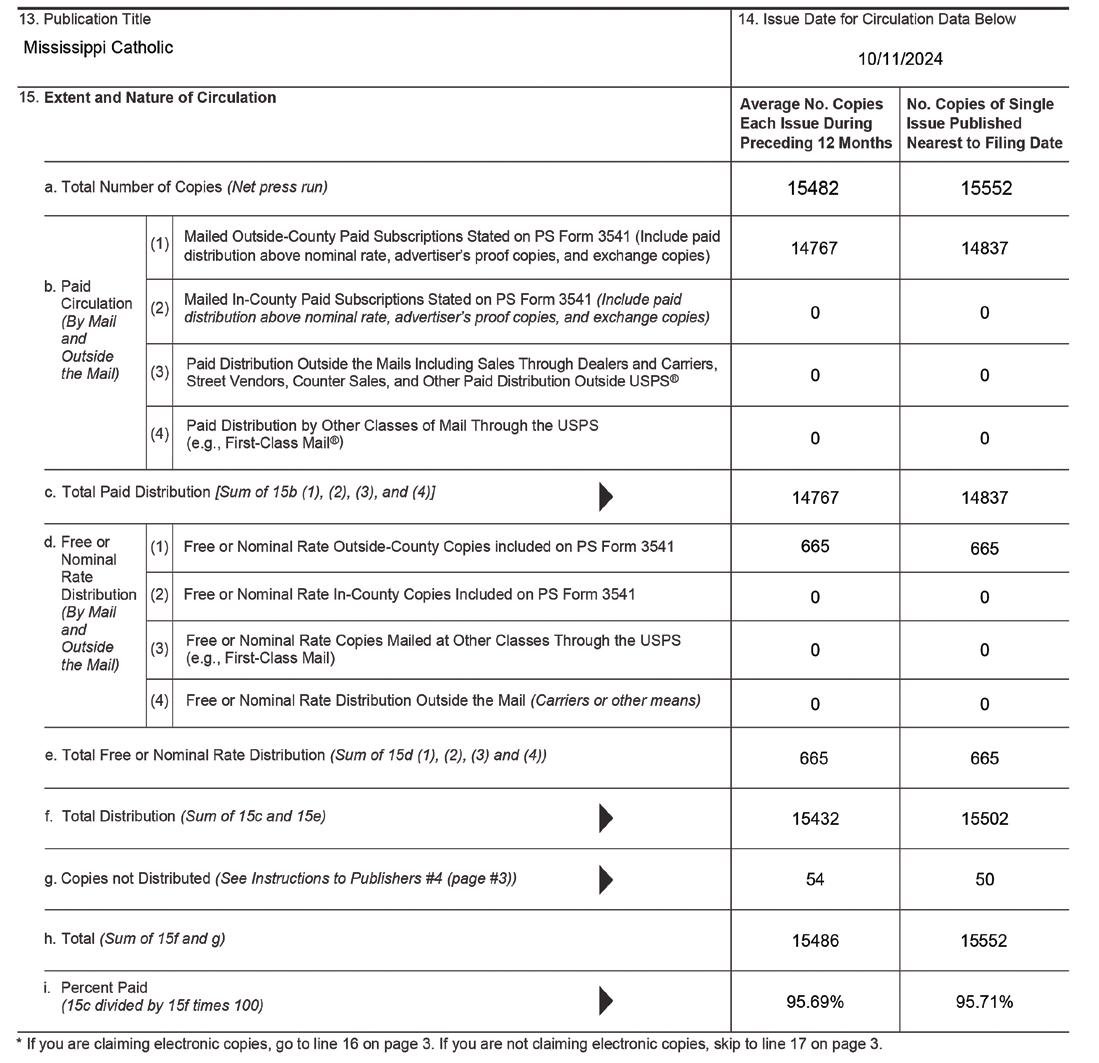

The Catholic News Herald is the newspaper of the Diocese of Charlotte.
NOTES: Electricity, drinkable water, food, medical care and cellphone service are in critically short supply in Western North Carolina in the aftermath of Tropical Storm Helene. Monetary donations are the fastest, most flexible and most effective way to support emergency relief efforts – local responders on the ground can use the funds to help people with immediate as well as long-term needs. Give securely online: www.ccdoc.org/helenerelief.
By GreG erlandson and lori dahlhoff (OSV News)
– Voting: It is one of our most important responsibilities as citizens. Indeed, the church teaches that there are three primary responsibilities of all citizens: to pay taxes, to defend their country and to vote.
Each of these responsibilities asks us to put the good of society and our fellow citizens above our individual desires and needs. Thus a primary question we must answer as Catholic voters is whether the needs of the weakest and most defenseless among us are being addressed. In the voting booth we have a privileged opportunity to contribute to our nation and promote the common good by bringing the values and teachings of our faith to bear on the issues facing our society.
The following is an FAQ on voting as a Catholic.
Q. Does the church tell me whom I should vote for?
A. No. The church does not tell us whom to vote for when we enter the voting booth. It does not endorse an official list of candidates or tell us which party Catholics should join. Instead, Catholics are to use their judgment and follow their consciences as they apply the teachings of our Lord Jesus Christ and the core faith values to the choices they make in the voting booth.
As Catholics, following the challenging path of discipleship, we need to evaluate the issues and candidates in the light of our Catholic faith. Then, we are challenged to live out our faith by getting actively involved – by voting and engaging in other civic activities.
Q. How does my Catholic faith help me to make these choices?
A. We are taught from an early age to form our consciences in the light of Catholic teaching. “To follow one’s conscience” is often misunderstood as something that allows us to do whatever we want, or as following the “feeling” we have that something is right or wrong.
But our faith teaches us that “conscience is the voice of God resounding in the human heart, revealing the truth to us and calling us to do what is good while shunning what is evil” (from the U.S. bishops’ 2015 document “Forming Consciences for Faithful Citizenship,” 17, hereafter referred to as FC).
It is our responsibility as Catholics to form our consciences by developing the virtue of prudence to discern true good in circumstances and to choose the right means of achieving it by maintaining a willingness and openness to seek what is right through studying Scripture and church teaching by using our reason to study key issues in light of this teaching, and by prayerfully seeking to understand the will of God.
Q. What about the separation of church and state? Can the church ask me to vote according to my Catholic principles?
A. Our nation’s founders sought to “separate church and state” in the sense of prohibiting the establishment of any particular denomination as the official religious body of the nation – not in the sense of forbidding religious organizations to address matters of grave importance to human welfare.
Building upon Scripture and the teachings of church leaders and saints for centuries, our faith has clear principles for how best to achieve justice, peace, and human dignity for all men and women.
Q. What are the key principles that should guide us as we enter the voting booth?
A. Four principles of Catholic social doctrine are key to making practical judgments to do good and
avoid evil in voting: Promoting and defending the dignity of the human person; supporting the family and subsidiarity in local, state and national institutions; working for the common good where human rights are protected and basic responsibilities are met; and acting in solidarity with concern for all as our brothers and sisters, especially the poor and most vulnerable.
Q. Is there anything Catholics must always reject?
A. As Catholics we “may choose different ways to respond to compelling social problems, but we cannot differ on our moral obligation to help build a more just and peaceful world through morally acceptable means, so that the weak and vulnerable are protected and human rights and dignity are defended.” (FC, 20)
Our faith reminds us that we must always reject and oppose “intrinsically evil” actions of any sort. Acts such as the taking of innocent human life are so deeply flawed that they are always incompatible with love of God and neighbor.
This is why the church so strongly opposes abortion and physician-assisted suicide (euthanasia). In each case, the lives of the weak and the vulnerable are endangered, and there can be no good reason to allow the taking of these innocent lives or to vote for legislation that would allow these evils to result. Likewise, our church opposes other actions that both violate human dignity and are destructive of life, such as human cloning or the destructive research on human embryos.
protected and human rights and dignity are defended.” (FC, 20)
Q. If no single party or candidate in a given election conforms to our key Catholic principles, what are we to do?
A. It is clear that one absolutely may not vote for a “candidate who favors a policy promoting an intrinsically evil act, such as abortion, euthanasia, assisted suicide, deliberately subjecting workers or the poor to subhuman living conditions, redefining marriage in ways that violate its essential meaning, or racist behavior, if the voter’s intent is to support that position.” (FC, 34, emphasis added) But neither can one use a candidate’s opposition to such evils “to justify indifference or inattentiveness to other important moral issues involving human life or dignity.” (FC, 34)
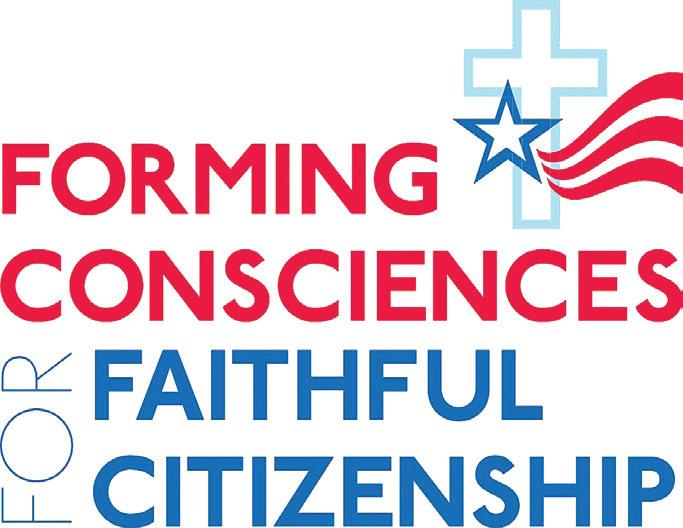
There may be times when a voter selects a candidate who holds an unacceptable position, but this can be done only for “truly grave moral reasons,” not just for partisan or personal interests. It may involve the prudential judgment that one candidate seems likely to do less harm or is more likely to pursue other positive priorities.
If, for a grave reason, we do vote for a candidate who holds positions contrary to fundamental moral goods, we have a duty to make our opposition to those positions heard. Writing letters, speaking up at forums, and participating in local party political activities are ways to steadfastly assert our Catholic values.
The church condemns genocide, torture, the targeting of noncombatants in acts of terror or war, and racism, for they too are severe violations of human rights and human dignity. Related concerns are excessive consumption of material goods, unjust discrimination, and the narrowing redefinition of religious freedom.
Q. If all of these are priorities, what is most important?
A. All of these issues are important, but they are not all morally or ethically equivalent. “The direct and intentional destruction of innocent human life from the moment of conception until natural death is always wrong and is not just one issue among many. It must always be opposed.” (FC, 28)
At the same time, issues such as war, the death penalty, racism, and care for the poor and the immigrant are enormously important. “These are not optional concerns which can be dismissed.” (FC, 29)
Q. But if we must keep all of these principles in mind, is there going to be anyone who we can vote for?
A. Unfortunately, we are often forced to choose between two inadequate and flawed political agendas. It can be quite difficult to find candidates who align with our consciences on all of the key moral issues.
This is why the virtue of prudence is necessary when approaching the voting booth. This virtue helps us deliberate over the choices before us – to determine, in light of church teaching and our formed consciences, who is most deserving of our support. In other words, in a world of imperfect choices, we must strive to make the best choice possible.
Where Catholics must be in agreement is that fundamental moral obligation we share: to “help build a more just and peaceful world through morally acceptable means, so that the weak and vulnerable are
Q. What can I do to prepare to vote?
A. Inform yourself about the church’s teachings. The Catechism of the Catholic Church is a great place to start. Consider gathering a small group to discuss church teachings in relation to the candidates or policies.
Inform yourself about the issues. Read the Catholic press and listen to the candidates. See where the candidates stand on critical moral and social issues.
Seek input from Catholics you respect.
Pray. Take your hopes, concerns and worries to the Lord and ask for his guidance.
Q. This seems hard.
A. In today’s political environment, voting as a Catholic is hard work. It takes serious reflection, knowledge of church teaching, and awareness of who the candidates are and where they stand on the issues.
The church challenges us to vote for what is best for society and all of its members, particularly those least able to speak up for or defend themselves. The great privilege of democracy is that we, as citizens and religious believers, can have a voice in the direction of our country by voting for the common good; this is both a right and a responsibility. The great privilege of being Catholic is that we have a community of faith and a body of teaching, going back to Christ himself, which can help us make good decisions in the voting booth.
Q. Where can I find out more?
A. Our bishops offer a detailed reflection on Catholic teaching and political life, called “Forming Consciences for Faithful Citizenship,” at www.faithfulcitizenship.org.
(Greg Erlandson is an award-winning Catholic publisher, editor and journalist. Lori Dahlhoff, EdD, has more than 20 years of experience in ministry.)
be generous nov. 2 & 3, 2024
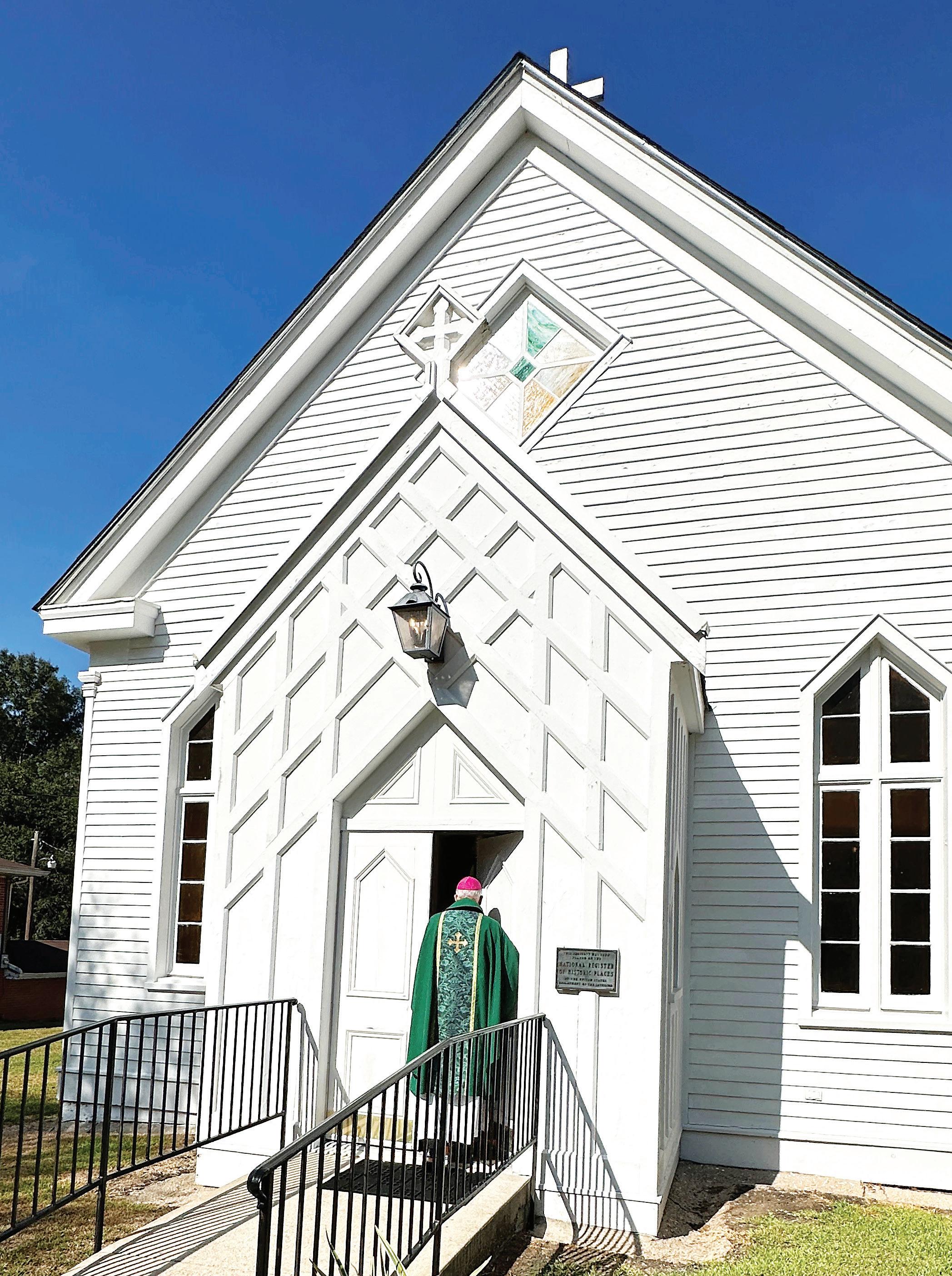
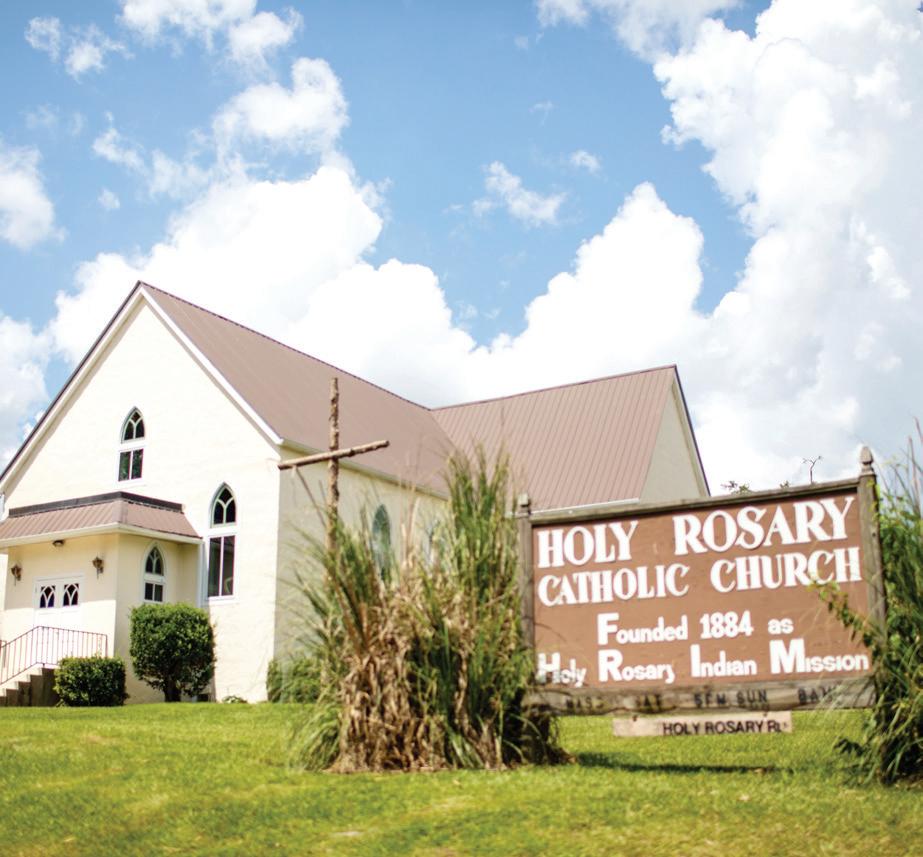
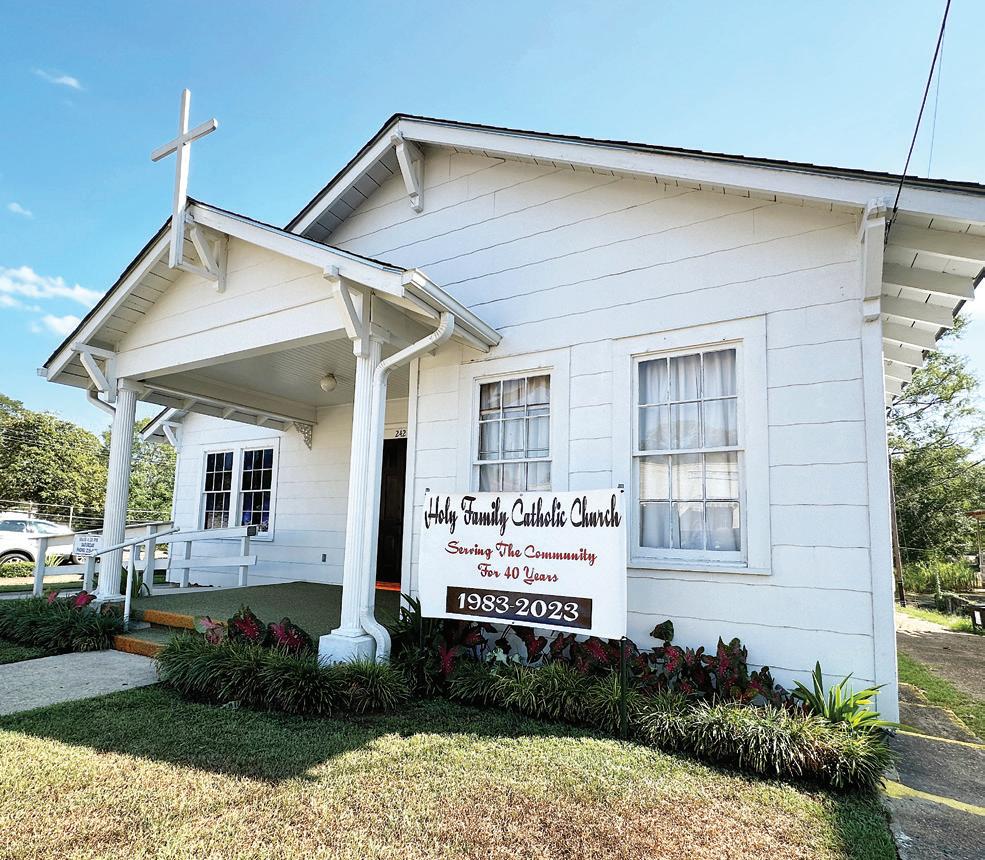
The diocese of Jackson covers 65 of Mississippi’s 82 counTies, Making iT The largesT diocese easT of The Mississippi river.
caTholics in The diocese are 2.3 % of The ToTal populaTion.
ission parishes need your help because:
— There are 9 counties without a church building and 28 counties without a resident priest.
— Forty percent of the people in the 65 counties are African-American; less than one percent share the Catholic faith.
— There are 33 public and private universities, colleges and community colleges; there are no Catholic colleges.
— Twenty parishes cover at least two counties.
— Thirty-one counties have neither a religious sister, brother or lay volunteer in ministry.
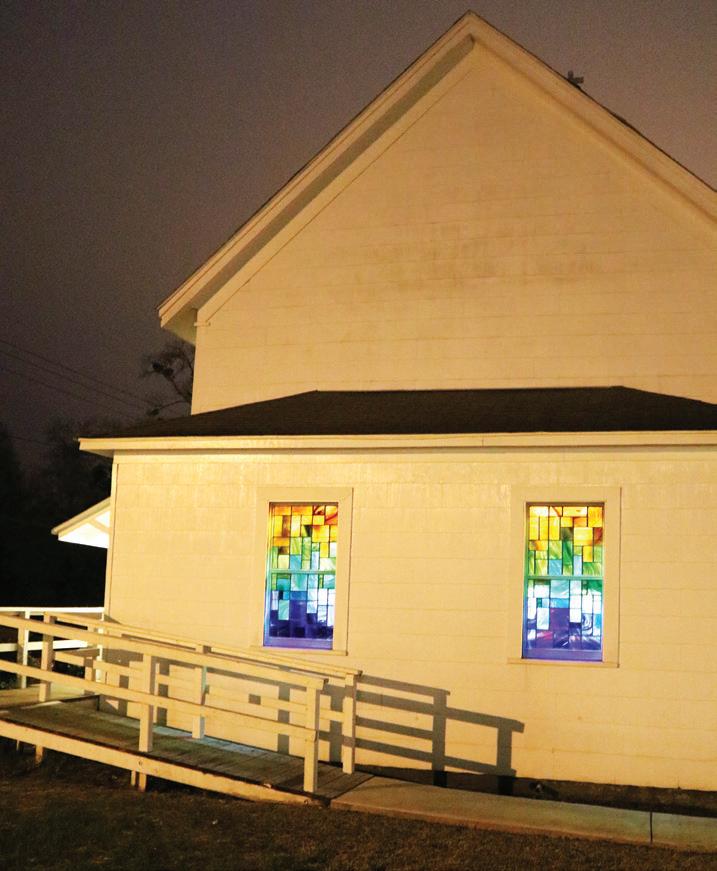
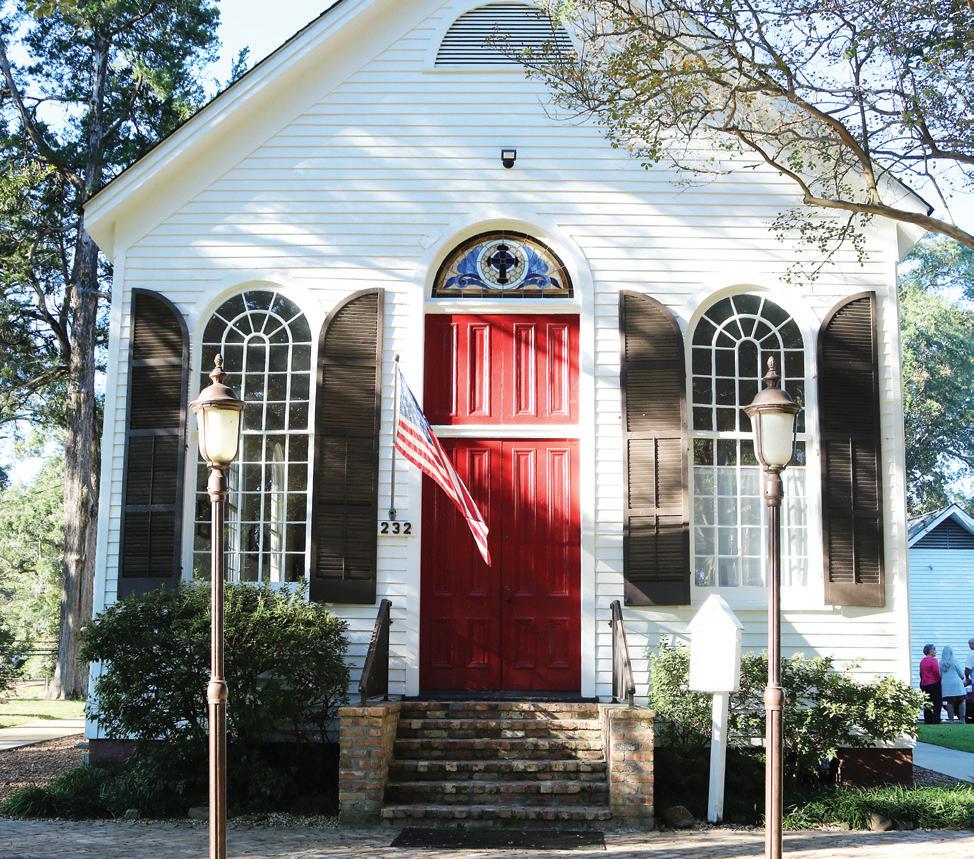
Por
cinDy

La segunda sesión del Sínodo sobre la Sinodalidad se centrará en la misión
WooDen
CIUDAD DEL VATICANO (CNS) – Con muchos de los temas concretos y controversiales eliminados de la agenda – ya que están siendo discutidos por grupos de estudio – algunas personas se preguntan qué harán los miembros del Sínodo de los Obispos sobre la sinodalidad cuando se reúnan en el Vaticano en octubre.
Para el Papa Francisco y los organizadores del sínodo, sin embargo, sacar de la mesa temas como el diaconado de mujeres o la formación en los seminarios permitirá a los 368 miembros del sínodo centrarse en su tarea principal: Encontrar formas de asegurar que las costumbres de la Iglesia, las formas de hacer las cosas, los tiempos y horarios, el lenguaje y las estructuras puedan canalizarse adecuadamente para la evangelización del mundo de hoy en lugar de para su autopreservación.
El cardenal Mario Grech, secretario general del Sínodo de los Obispos, citó las palabras de la exhortación del Papa Francisco de 2013, “La alegría del Evangelio”, al explicar en qué
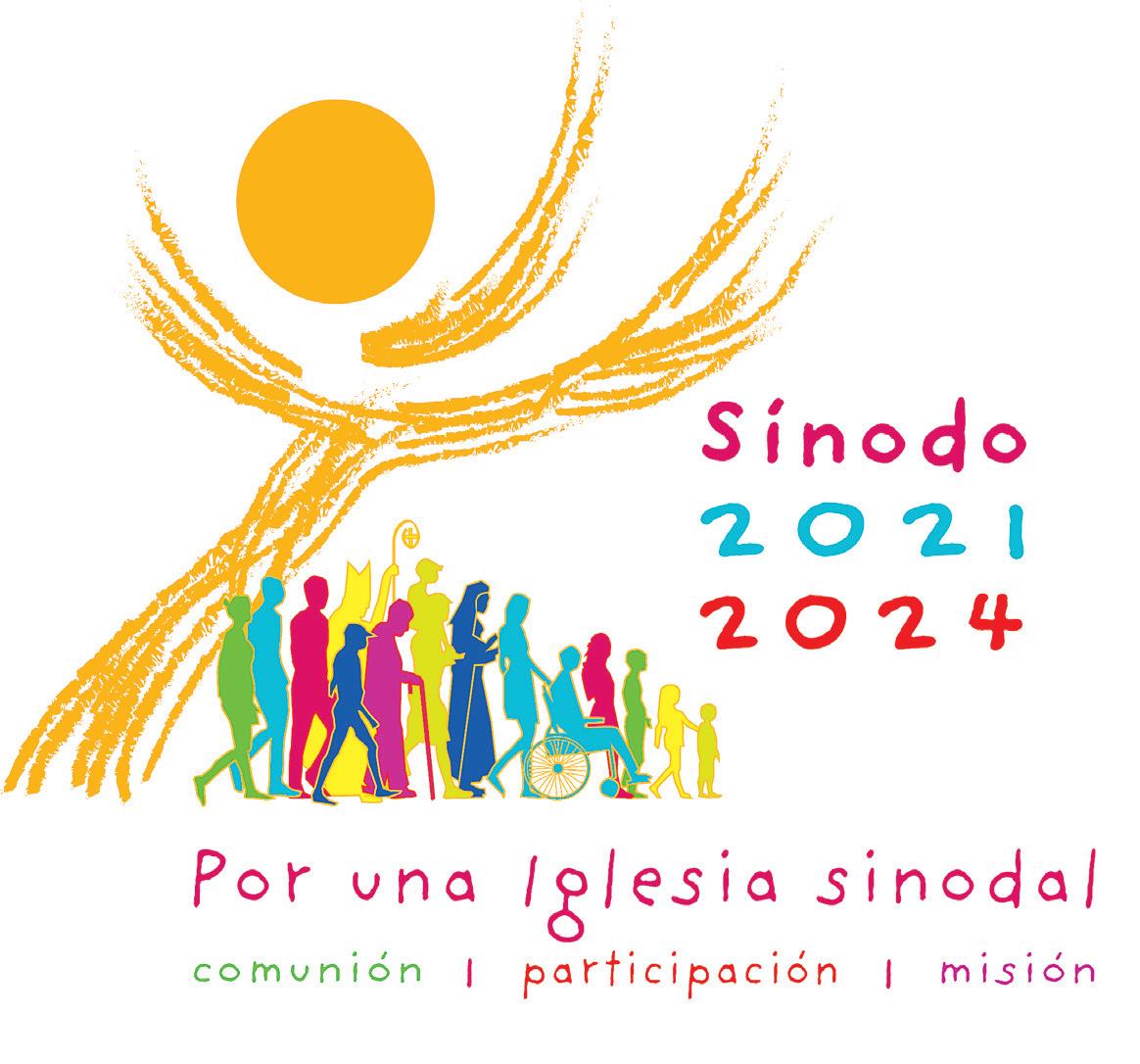
consistía el proceso de tres años del sínodo sobre la sinodalidad.
El documento de trabajo para la segunda sesión del sínodo del 2 al 27 de octubre resumía como su tarea “identificar los caminos a seguir y los instrumentos a adoptar en los diferentes contextos y circunstancias, para potenciar la originalidad de cada bautizado y de cada Iglesia en la misión única de anunciar al Señor Resucitado y su Evangelio al mundo de hoy”.
En el prefacio de un libro sobre la sinodalidad, publicado en el diario vaticano el 24 de septiembre, el cardenal Grech escribió que las consultas celebradas con católicos de todo el mundo a partir de 2021-2022 “constataron, no sin decepción, el problema de una Iglesia percibida como una comunidad exclusiva y excluyente: la Iglesia de las puertas cerradas, de las costumbres y de los peajes que hay que pagar”.
“Lo que debe cambiar no es el Evangelio, sino nuestra manera de proclamarlo”, afirmó.
La tarea de los miembros del sínodo – obis-
– Continúa en la página 2 –
A 10 años de la desaparición de estudiantes mexicanos, su padres siguen sin saber dónde están sus hijos
Por DaViD aGren
CIUDAD DE MÉXICO (OSV News) – Cristina Bautista nunca ha dejado de buscar a su hijo, que estaba entre los 43 estudiantes desaparecidos en un ataque de 2014 que nunca se ha resuelto. Ella continúa su búsqueda por dos simples razones: Nadie más lo hace y las investigaciones gubernamentales se topan una y otra vez con obstáculos, a menudo por falta de voluntad política.
“Estos 10 años fue una simulación de buscar a nuestros hijos”, dijo Bautista a OSV News. “Porque si fuera de verdad, de verdad, los hijos no estuvieran ausente estos 10 años”, sin saber nada de ellos.
El ataque del 26 de septiembre de 2014 contra los estudiantes de la Escuela Normal Raúl Isidro Burgos de Ayotzinapa, una escuela normal rural para hombres jóvenes, conmocionó a México, que parecía haberse acostumbrado a las historias espeluznantes de la violencia de los cárteles de la droga. Diez años después, el caso sigue en el ámbito de la impunidad, a pesar de la indignación generalizada de la sociedad, la búsqueda de los padres y las investigaciones mexicanas e internacionales.
La Escuela Normal Rural de Ayotzinapa forma parte de una red de escuelas normales creadas hace décadas para llevar la educación a las zonas rurales. Con el tiempo, las escuelas se han implicado profundamente en cuestiones sociales.
La noche en que desaparecieron los estudiantes, que habían requisado autobuses en la ciudad de Iguala – situada a 190 kilómetros al sur de Ciudad de México, en el corazón productor de heroína del país – tenían previsto viajar
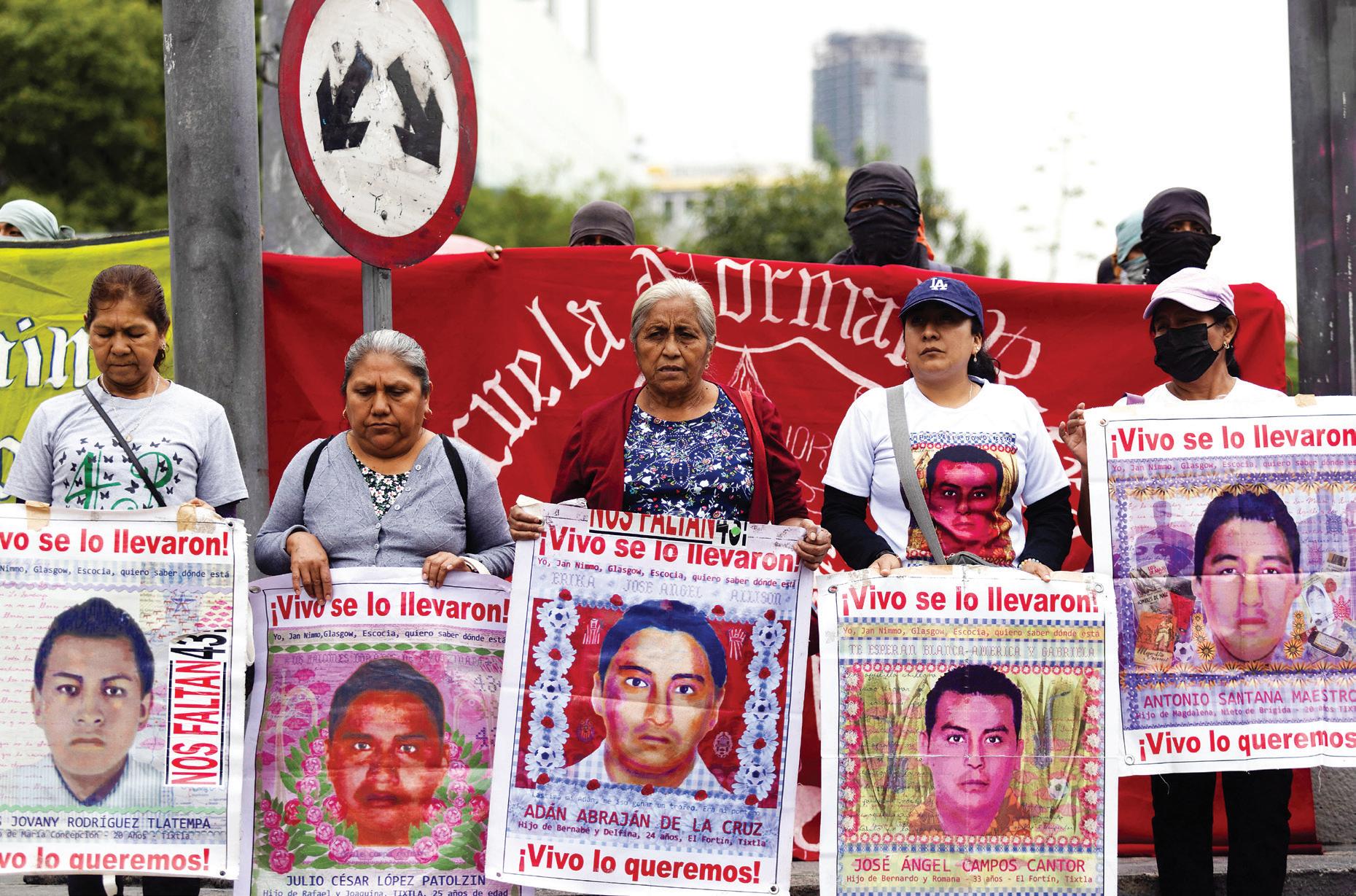
Demonstrators and students from the Ayotzinapa Rural Normal School, a rural teachers college for young men in the southern Mexican state of Guerrero, protest in Mexico City Sept. 25, 2024, ahead of the 10th anniversary of a Sept. 26, 2014, evening attack when 43 students from the school disappeared south of the city of Iguala. (OSV News photo/Quetzalli Nicte-Ha, Reuters) – Continúa en la página 2 –
‘... Voy a seguir buscando mientras Dios me preste la vida ...’
– Viene de la página 1 –
a la capital para una protesta anual contra una atrocidad anterior: el ataque de 1968 contra estudiantes en vísperas de los Juegos Olímpicos de verano, según una comisión de la verdad del gobierno e investigaciones internacionales. Pero sus autobuses fueron atacados por la policía, que entregó a los estudiantes al cártel de la droga Guerreros Unidos.
El aniversario fue un duro recordatorio del poder y la impunidad de los cárteles de la droga, así como de la connivencia de políticos y policías con los grupos delictivos. También mostró la falta de voluntad política para resolver uno de los crímenes más notorios del país. Para los padres de los estudiantes desaparecidos, sólo queda una pregunta.
“¿Qué pasó realmente con nuestros hijos?” dijo Bautista. “Eso es lo que queremos saber”.
La noticia inicial del ataque hizo que mexicanos de todas las clases socioeconómicas salieran a las calles a protestar, gritando: “Fue el Estado” y “Vivos se los llevaron, vivos los queremos”.
También protestaron contra la investigación inicial del gobierno, que postuló que los estudiantes fueron secuestrados y llevados a un basurero, donde sus cuerpos fueron quemados. Es una versión de los hechos que el entonces Procurador General de la República, Jesús Murillo Karam, llamó la “verdad histórica”.
La investigación bajo el presidente Enrique Peña Nieto, que dejó el cargo en 2018, se basó en gran medida en torturar a los sospechosos, según investigadores externos. Los militares tampoco cooperaron.
El presidente Andrés Manuel López Obrador, sin embargo, se comprometió a revivir el caso. Se reunió personalmente con los padres de los 43 estudiantes durante su exitosa campaña de 2018, donde, recordó Bautista, “prometió esclarecer el caso (y) teníamos fe y esperanza en él de que llegaríamos a la verdad”.
López Obrador formó una comisión de la verdad poco después de asumir el cargo en diciembre de 2018. También nombró a un fiscal especial y también se invitó a investigadores internacionales a regresar.
“Si había una una voluntad política clara”, dijo Santiago Aguirre, director Centro de Derechos Humanos Miguel Agustín Pro Juárez, también conocido como Centro Prodh, el cual es patrocinado por los jesuitas en la Ciudad de México. “Hubo avances”.
La comisión de la verdad publicó un informe en 2022, calificando los ataques de “crimen de Estado”. También descubrió que los estudiantes habían sido vigilados por la policía y el ejército desde el momento en que salieron de la escuela de
Ayotzinapa – a unas 75 millas al sur de Iguala – y durante el ataque, pero no intervinieron. La comisión desconocía el paradero de los estudiantes, pero consideraba poco probable que siguieran con vida.
Posteriormente se dictaron al menos 80 órdenes de detención y Murillo Karam fue detenido acusado de tortura y desaparición forzada, cargos que él niega.
Pero, luego, el caso se estancó y el fiscal especial dimitió repentinamente. Los abogados de las familias alegaron que la investigación chocaba con el ejército mexicano, que se ha convertido en uno de los principales aliados del presidente a lo largo de su gobierno.
El fiscal independiente para Ayotzinapa “encontró evidencia del nivel de corrupción de las autoridades mexicanas y, en particular, de los vínculos de algunos elementos del ejército con el narcotráfico”, dijo Aguirre a OSV News. “En el Centro Prodhcreemos que ante la disyuntiva de apoyar a las víctimas o seguir con los militares, el presidente y el gobierno optaron por lo segundo y eso explica que el caso no esté resuelto”.
Los investigadores internacionales, por su parte, alegan que los militares desobedecieron las órdenes presidenciales de abrir sus archivos. Abandonaron el país en 2023, diciendo: “Es imposible continuar”.
López Obrador insistió: “No hay impunidad”, al tiempo que dijo que el caso avanzó gracias a las fuerzas armadas.
Más tarde, el presidente apuntó contra los abogados de las familias de los estudiantes, incluido Centro Pro, una organización de derechos humanos. Atacó verbalmente a Centro Prodhen múltiples ocasiones en su conferencia de prensa matutina, alegando que “ya no es el de antes”, en referencia a la larga historia de Centro Prodhde acompañar a las víctimas de la violencia y enfrentarse a actores estatales como los militares.
También insistió en que las familias de Ayotzinapa “están siendo manipuladas por grupos conservadores de derecha, apoyados por gobiernos extranjeros que quieren hacernos daño, políticamente hablando”. Hizo los comentarios en marzo de 2024, recurriendo a su palabra habitual para los supuestos opositores: “conservadores”. ue estamos avanzando mucho en la investigación, pero lo que sucede es que ellos están siendo manipulados por el grupo que encabeza Álvarez Icaza, la Comisión Interamericana de “Sin duda obedecen a que no hemos callado nuestros señalamientos sobre la persistencia en el presente de la impunidad, la violencia y el encubrimiento al Ejército”, dijo Centro Prodhen una respuesta a López Obrador en diciembre de 2023. “Nuestra labor, junto con otras organizaciones respetadas de la sociedad civil, ha sido defender los intereses y derechos de las familias, poniendo las víctimas al centro”.
‘... Discernimiento del sínodo implica escucharse unos a otros y al Espíritu Santo para respetar las tradiciones de las personas ...’
–
Viene de la página 1 –
pos, sacerdotes, miembros de órdenes religiosas y laicos – será definir mejor o al menos describir lo que se entiende por sinodalidad y sugerir formas de vivir esa visión.
En concreto, eso significa: ayudar a las personas a escucharse unas a otras y al Espíritu Santo; examinar las relaciones dentro de la Iglesia y asegurarse de que capacitan a cada miembro para asumir la responsabilidad de la misión de la Iglesia; llegar a las personas que se han sentido rechazadas o excluidas por la Iglesia; aumentar la responsabilidad de las personas en puestos de liderazgo; garantizar que los consejos parroquiales y diocesanos sean verdaderamente representativos y escuchados; y aumentar las oportunidades para que las mujeres pongan sus dones y talentos al servicio de la Iglesia, incluso en el liderazgo y la toma de decisiones.
Aunque esos objetivos tienen sentido desde un punto de vista organizativo, la Iglesia católica se ve a sí misma como el cuerpo de Cristo, no como una organización, y tradicionalmente ha vinculado la tarea de gobierno y toma de decisiones a la ordenación. La forma de ejercer esa autoridad puede variar según la Iglesia, el país y la cultura. Los miembros del Sínodo proceden de más de 110 países y de 15 de las iglesias católicas orientales.
Parte del discernimiento del sínodo implica escucharse unos a otros y al Espíritu Santo para respetar las tradiciones de las personas con “t” minúscula, al
tiempo que se está abierto a algo nuevo. La frecuente observación del Papa Francisco de que el Espíritu Santo toma la diversidad y a partir de ella crea armonía, no uniformidad, es una prueba para una Iglesia que es universal a la vez que increíblemente variada.
En el mismo texto publicado por el diario vaticano el 24 de septiembre, el cardenal Grech escribió 24 de septiembre, el cardenal Grech escribió: “Mientras que tradicionalmente el catolicismo se ha centrado más en lo ‘singular’, identificando en la unidad ‘cum et sub Petro’ (‘con y bajo Pedro’) una salvaguardia contra la dispersión y el error, hoy sentimos la necesidad de reequilibrar el discurso dando espacio a lo ‘plural’, para que la unidad no degenere en uniformidad, apagando la imaginación del Espíritu Santo, que esparce semillas de verdad y de gracia en los diferentes pueblos y en sus variadas culturas”.
El cardenal Grech también insistió en que la crítica del sínodo al “clericalismo”, como la del Papa Francisco, no proviene de algún “igualitarismo filosófico o político”, sino de la “ansiedad misionera”.
“De hecho, al socavar el potencial de los hombres y mujeres laicos en el trabajo de evangelización, el clericalismo debilita la misión, haciendo que la Iglesia sea más frágil ante el desafío de compartir el Evangelio en el mundo”, escribió el cardenal.
El clericalismo restringe la evangelización al clero, dijo, y “deja a los ‘simples’ bautizados en una posición de pasividad, como si el mandato misionero del Señor Resucitado no se aplicara también a ellos”.
Los padres de los estudiantes desaparecidos respaldaron a sus representantes tras los ataques del presidente, entre ellos Centro Pro.
“Gracias a ellos, pues, el Gobierno no nos puede engañar, no nos puede entregar un cuerpo que no perteneciera a nuestros hijos”, dijo Bautista.
López Obrador dejará el cargo el 30 de septiembre con un índice de aprobación superior al 70%, según algunas encuestas. Su popularidad y sus repetidos ataques a los representantes de los padres de familia le han restado parte del apoyo que había recibido hasta 2022, según los observadores. El presidente ha dicho que espera que su sucesora, Claudia Sheinbaum, continúe la investigación.
“Hice el compromiso con ellos de buscarlos hasta encontrar a los jóvenes, trabajamos en eso todo el tiempo, no se avanzó como quisiéramos, pero no es un expediente cerrado”, dijo en una carta del 25 de septiembre a las familias.
Las familias han expresado repetidamente su decepción con López Obrador, diciendo en una carta de julio: “Nos has mentido, nos has engañado y traicionado”.
Bautista, por su parte, prometió dar con el paradero de su hijo.
“Voy a seguir buscando mientras Dios me preste la vida”, dijo. “Voy a seguir aquí”.
(David Agren escribe para OSV News desde Ciudad de México.)
Por obisPo JosePh r. KoPacz, D.D.

En el corazón del mes de octubre, dedicado a la vida humana en todas sus etapas, es decir, a la dignidad de la persona humana como piedra angular del bien común, la Iglesia plantea también las luchas que rodean la salud mental. La Campaña Nacional Católica de Salud Mental es una iniciativa que dura todo el año, y cada año, los obispos de los Estados Unidos participan en un esfuerzo concertado que comienza en el Día Mundial de la Salud Mental, el 10 de octubre (desde 1992), y continúa hasta la fiesta de San Lucas, patrón de la atención médica (18 de octubre). Durante este período concentrado, se promueven tres objetivos principales: (1) crear conciencia sobre la crisis de salud mental, (2) combatir el estigma que rodea el tema de la salud mental y (3) abogar por todos los afectados por la crisis. El mensaje de la campaña es sencillo: todos los que necesiten ayuda deben recibirla. Nuestra nación se enfrenta a una grave crisis de salud mental. Según el Centro para el Control y la Prevención de Enfermedades, más de uno de cada cinco adultos vive con una enfermedad mental. Aparentemente, se espera que la mitad de los estadounidenses tengan algún tipo de enfermedad mental durante su vida. Sin embargo, conserva un estigma pernicioso. Y puede interferir con las personas que buscan tratamiento para encontrar una comunidad comprensiva que los apoye.
Una revisión de los datos de 144 estudios de participantes de todo el mundo reveló que el estigma de las enfermedades mentales sigue siendo una de las principales barreras para acceder a la atención de la salud mental. Existe especial preocupación por el estado de salud mental de los adolescentes. Casi todos los indicadores de salud mental entre los estudiantes de secundaria aumentaron en la última década. En 2021, el 42% de los estudiantes experimentó sentimientos persistentes de tristeza o desesperanza, comparado al 28% de la década anterior. El 22 % consideró seriamente intentar suicidarse, el 16 %, y el 18% hizo un plan suicida, a comparación del 13% anterior.
Los datos revelan además resultados muy distintos entre sí de salud mental basados en raza. Además, muestra que, si bien los niños y las niñas sufren profundamente, pueden enfrentar distintos desafíos. Los datos también son preocupantes con respecto a un número desproporcionado de personas que se identifican como LGBTQ que enfrentan dificultades de salud mental. “Como Iglesia, debemos prestar especial atención a estas diferencias en nuestro trabajo pastoral y nuestros esfuerzos de defensa”, recalcaron los obispos de Estados Unidos. Este problema se agranda por la escasez de recursos de salud mental en demasiadas comunidades de nuestra nación.
No estamos solos en esta lucha, ya que la angustia mental se extiende por todo el mundo. La Organización Mundial de la Salud estima que casi mil millones de personas viven con un trastorno mental en todo el mundo. Las tasas mundiales de depresión y ansiedad aumentaron más del 25% en el primer año de la pandemia, según la Organización Mundial de la Salud. La hermana Carneiro, la nueva superiora general de las Hermanas Hospitalarias, que atienden a casi 1 millón de personas con trastornos mentales en 25 países, dijo al servicio de noticias católicas que la Iglesia “tiene un papel importante de esperanza, de ofrecer un nuevo horizonte” a las personas que luchan con enfermedades mentales. Está calificada para hablar en nombre de la iglesia en el país y en el extranjero. Si bien la sociedad debe ser activa en el tratamiento de los problemas de salud mental, explicó que la iglesia tiene un “elemento diferenciador único, porque
La
Esquina del Papa
está motivada por la fe, con una dimensión de esperanza y reconocimiento de que cada persona es más que su enfermedad y tiene dignidad humana. Cuando hay un problema de salud mental, no es solo la mente la que está enferma, sino también todo el ser, todo el sentido de la vida”, dijo la hermana Carneiro. “Para la Iglesia y para nosotros como congregación, lo más importante es ayudar a las personas vulnerables que están sufriendo a encontrar de nuevo un sentido de vida y esperanza”. Su mensaje resuena bien con el inminente año Jubileo, cuyo tema es un Jubileo de la Esperanza La Conferencia de Obispos Católicos de los Estados Unidos (USCCB, por sus siglas en inglés) recomienda que cada parroquia de los Estados Unidos promueva la novena anual dentro de sus comunidades. La novena va oficialmente del 10 al 18 de octubre de 2024. Los textos diarios de la novena se pueden encontrar en línea en https://www.usccb.org/mentalhealth. En primer y último lugar, que nunca pasemos por alto el poder de la oración al servicio de la salud y la esperanza.
Por todas las personas que se ven afectadas por problemas de salud mental, especialmente dentro de nuestra comunidad local, que Dios los bendiga con su gracia y consuelo, y que los católicos de todo el mundo acompañen y apoyen a las mujeres, hombres y niños que experimentan problemas de salud mental y promuevan el bienestar mental y espiritual. Oremos a Cristo nuestro Señor. Amén.
El Papa reza por la colaboración: ‘Los sacerdotes no somos los jefes de los laicos’
by Justin McLeLLan
CIUDAD DEL VATICANO (CNS) – Cada cristiano, ya sea laico o miembro del clero, tiene un papel vital que desempeñar en el avance de la misión de la Iglesia a través de la colaboración, dijo el Papa Francisco.
“Los sacerdotes no somos los jefes de los laicos, sino sus pastores”, dijo el Papa en un videomensaje para su intención de oración de octubre: “Por una misión compartida”.
Los cristianos están llamados a seguir a Jesús no con “unos por encima de los otros, ni a unos por un lado y a otros por el otro, sino complementándonos”, dijo el Papa en el mensaje publicado por la Red Mundial de Oración del Papa el 30 de septiembre. “Por eso debemos caminar juntos recorriendo el camino de la sinodalidad”.
La red publica un breve vídeo del Papa en el que ofrece su intención de oración específica cada mes, y los miembros de la red rezan por esa intención cada día.
Además de coincidir con el mes que incluye la Jornada Mundial de las Misiones, el mensaje del Papa se pronunció cuando 368 miembros del Sínodo de los Obispos iniciaban un retiro de dos días previo a la segunda sesión del sínodo en Roma. El Sínodo, centrado en la sinodalidad, reúne a obispos y otros expertos de todo el mundo para debatir cómo crear una Iglesia más atenta a las necesidades de los fieles.
El Papa Francisco sugirió que un conductor de autobús, un agricultor o un pescador pueden preguntarse qué papel pueden desempeñar en la mis-
ión evangelizadora de la Iglesia. Pero “lo que tenemos que hacer todos: dar testimonio con nuestras vidas. Y corresponsabilizarnos de la misión de la Iglesia”, exhortó. “Los laicos, los bautizados, están en la Iglesia en su propia casa, y tienen que cuidarla. Lo mismo que nosotros, los sacerdotes, los consagrados”, dijo el Papa. “Cada uno aportando lo que mejor sabe hacer”.
“Somos corresponsables en la misión, participamos y vivimos en la comunión de la Iglesia”, dijo, pidiendo oraciones para que la iglesia “siga apoyando por todos los medios un estilo de vida sinodal, bajo el signo de la corresponsabilidad, promoviendo la participación, la comunión y la misión compartida entre sacerdotes, religiosos y laicos”.
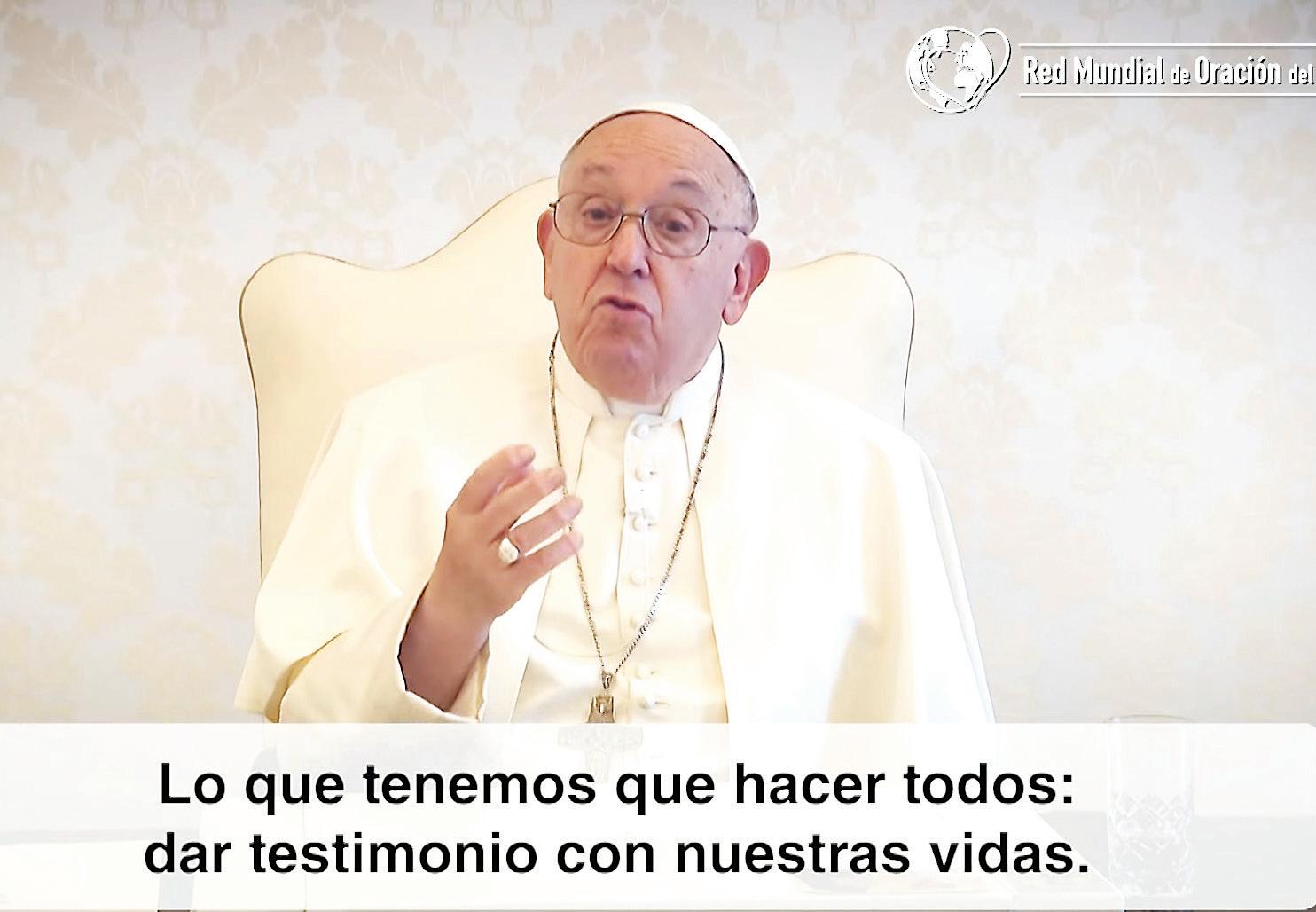
El Papa Francisco comenta su intención de oración de octubre, “Por una misión compartida”, en un videomensaje difundido por el Vaticano el 30 de septiembre de 2024. (CNS screengrab/Red Mundial de Oración del Papa)
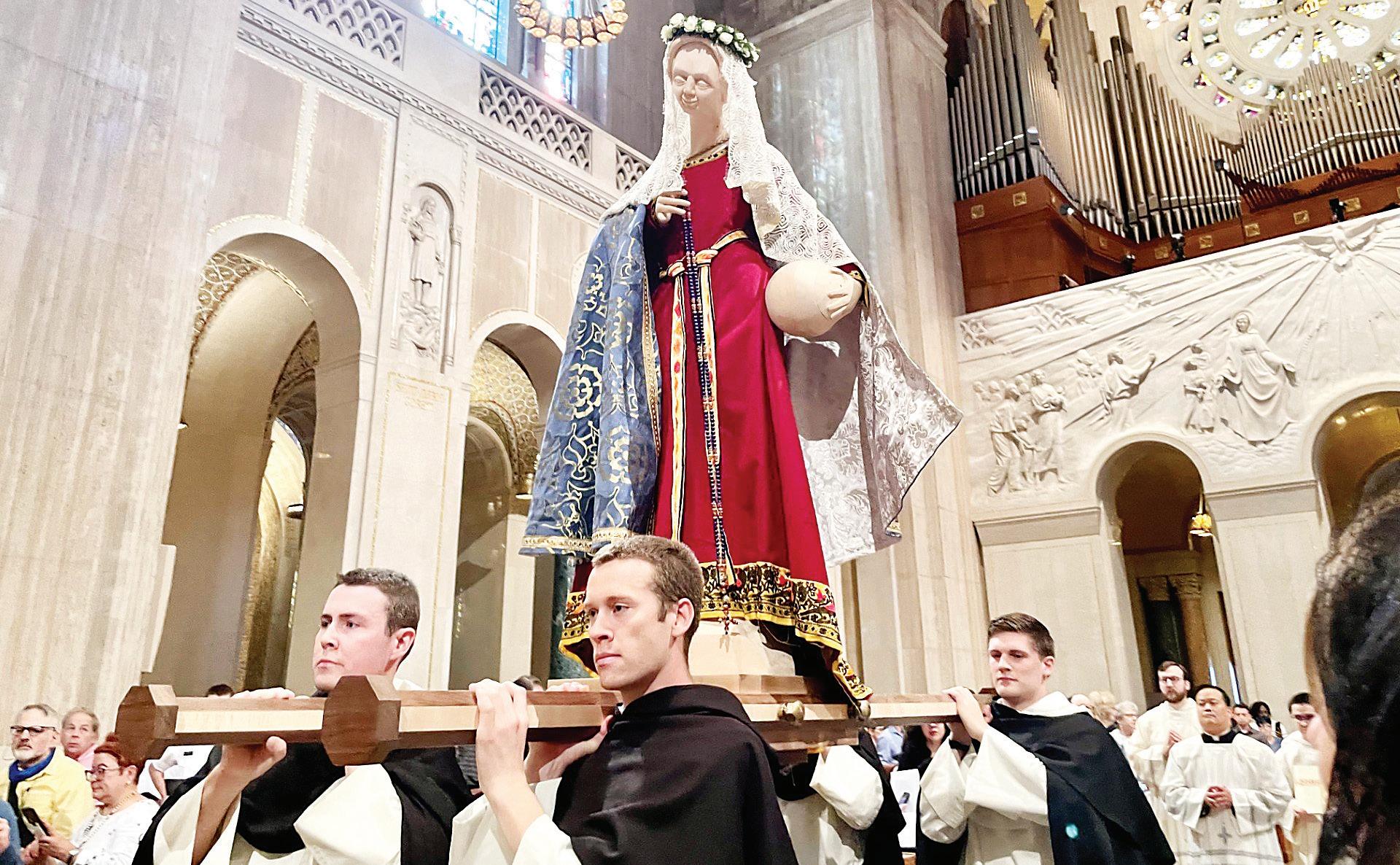
Una estatua de María es llevada mientras la gente se reúne para la Peregrinación del Rosario Dominicano en la Basílica del Santuario Nacional de la Inmaculada Concepción en Washington el 28 de septiembre de 2024. Miles de peregrinos de todo el país se reunieron en el santuario para honrar a María, la Madre de Dios, y su don del rosario. (Foto OSV News/ Katie Yoder)
WASHINGTON (OSV News) – Miles de peregrinos de todo el país se reunieron en la Basílica del Santuario Nacional de la Inmaculada Concepción de Washington el 28 de septiembre para honrar a María, la Madre de Dios, y su don del rosario. «Soy todo tuyo, María, soy todo tuyo», cantó la multitud en latín cuando la segunda peregrinación anual del Rosario dominicano comenzó con la procesión de una estatua de María, Reina del Santísimo Rosario. «Todo lo que tengo, Madre de Cristo, todo lo que tengo es tuyo». Más de 3.000 personas se inscribieron en la peregrinación gratuita de un día de duración para celebrar el rosario, organizada por los frailes dominicos de la Provincia de San José y sus cofradías locales de la Cofradía del Santísimo Rosario, una asociación espiritual dedicada al rosario. Frailes y hermanas dominicos salpicaron a una multitud diversa de hombres y mujeres, jóvenes y mayores, personas y familias de diferentes culturas y procedencias. El acto en la basílica, la mayor iglesia católica romana de Norteamérica, incluyó predicación, adoración, confesión, firma de libros, rezo del rosario, inscripción en la cofradía, misa y un concierto nocturno con los Hillbilly Thomists, una banda de bluegrass formada por frailes dominicos. Fundada en 1216 por Santo Domingo de Guzmán, la Orden Dominicana, también conocida como Orden de Predicadores, tiene una relación especial con el rosario: Según la tradición, María se apareció a Santo Domingo, encomendándole la promoción del rosario.
LUXEMBURGO (CNS) – La humanidad necesita ser motivada por valores espirituales si quiere evitar ser lanzada a peligrosas hazañas e inútiles masacres, dijo el Papa Francisco. El mundo, incluso en Europa, está asistiendo a un retorno de “desavenencias y enemistades que, en lugar de resolverse sobre la base de la buena voluntad mutua, la negociación y la labor diplomática, desembocan en hostilidades abiertas, con su secuela de destrucción y muerte”, dijo el Papa en Luxemburgo durante un encuentro con autoridades, miembros del cuerpo diplomático y representantes locales.
Fue el primer día de un viaje de cuatro días, del 26 al 29 de septiembre, a la pequeña nación y a la cercana Bélgica. “Parece que el corazón humano no siempre sabe preservar la memoria y que periódicamente se extravía y vuelve a los trágicos caminos de la guerra”, dijo en su discurso en la reunión celebrada en el principal edificio administrativo de la ciudad, el Cercle Cité.
“Para curar esta peligrosa esclerosis, que enferma gravemente a las naciones y aumenta los conflictos y corre el riesgo de lanzarlas a aventuras con inmensos costes humanos, renovando inútiles masacres, es necesario mirar hacia lo alto”, dijo, haciendo un llamamiento a los ciudadanos y dirigentes para
11 de octubre de 2024
que estén motivados “por elevados y profundos valores espirituales”.
CIUDAD DE MÉXICO (OSV News) – La Conferencia del Episcopado Mexicano ha pedido a la recién juramentada presidenta del país que busque la paz social, ya que hereda el complicado legado de su popular y polarizante predecesor, quien promovió programas sociales para los pobres, pero le deja un país plagado de violencia y percibido como un retroceso en la democracia.
Claudia Sheinbaum juró su cargo el 1 de octubre en el Congreso del país como primera mujer presidenta de México en la historia de dicha nación.
En una declaración del 30 de septiembre, los obispos desearon lo mejor a la presidenta Sheinbaum, al tiempo que la alentaron a gobernar para todos los mexicanos, ya que recibe una presidencia cada vez más poderosa y el partido gobernante Morena tiene megamayorías en ambas cámaras del Congreso, lo que le permite gobernar por decreto.
“Creemos que al llegar, por primera vez a la Presidencia de la República una mujer, sabrá tener una gran sensibilidad y respeto impulsando todo aquello que redunde para el bien y el desarrollo social de todos los ciudadanos”, dice la declaración de los obispos.
“México tiene grandes retos que son oportunidad para crecer en participación y diálogo, superando la polarización, buscando la reconciliación hasta llegar a los acuerdos necesarios junto a todas las fuerzas políticas, – sin aniquilar a las minorías – para construir, desde el dialogo y el consenso, el proyecto del bien común para que la sociedad mexicana viva en paz”, escribieron los obispos.
Sheinbaum, de 62 años, asumirá el cargo como la primera mujer presidenta de México y la primera jefa de Estado judía, aunque ella se identifica como no religiosa. Sheinbaum, científica del clima y ex alcaldesa de Ciudad de México, obtuvo más del 60% del voto popular en las elecciones del 2 de junio, presentándose con una plataforma de continuación del proyecto político populista de su mentor, el presidente saliente Andrés Manuel López Obrador.
Santa Teresa de Jesús. Octubre 15
Día de San Juan Pablo II. Octubre 22
San Antonio Maria Claret. Octubre 24
San Judas Tadeo. Octubre 28
Día de Todos los Santos. Noviembre 1
Día de los Fieles Difuntos. Noviembre 2
CLINTON – Holy Savior, Taller de Compentencia Intercultural para lideres parroquiales, Lunes 9 de noviembre de8:30 a.m. a 3 p.m. Inscribirse al (769) 901-1946.
FOREST – St. Michael, Misa de Todos los Santos, Viernes 1 de noviembre a las 8 p.m. y Misa del Día de los Fieles Difuntos, Sábado 2 de noviembre a las 5 p.m.
HERNANDO – Holy Spirit, Evento Juvenil de las seis parroquias, Domingo 13 de octubre. Comenzando con Misa a las 3 p.m. Ven y únete para una tarde de diversión, juegos, música, baile, increíble comida y compañerismo. Celebramos ser ¡Católicos!
MORTON – Misa por el Día de los Fieles Difuntos en Hopewell Point el sábado 2 de noviembre a las 5 p.m.
GREENWOOD – St. Francis, Fiesta de San Francisco, Domingo 6 de octubre. Se celebrará una misa bilingüe a las 12 p.m., seguida de un potluck parroquial. Todos están invitados a asistir y traer su plato favorito para compartir.
PONTOTOC – St. Christopher, Misa al aire libre en el Tanglefoot Trail Pavillion el 13 de octubre a las 9:30 a.m. con fiesta después de la Misa.
SOUTHAVEN – Christ the King, Halloween Divertido – una alternativa para celebrar para niños del kínder al 5to grado. El jueves 31 de octubre, de 6 a 8 p.m. Costo: una bolsa grande de dulces Ven disfrazado a jugar juegos de carnaval.
Envíenos sus fotos a editor@jacksondiocese.org
Síganos en Facebook: @DiócesisCatólicadeJackson
By Mary WoodWard
Over the past few years, I have written about our bishops and their adventures here in Mississippi. We have explored Bishop Chanche arriving at midnight on the docks in Natchez in May 1841; Bishop VandeVelde falling down the steps and breaking his leg in 1855; and Bishop Elder being exiled to Vidalia during the Civil War.
Bishop Gunn’s account of Bishop Heslin’s rolling out of a mule cart leading to his demise as well as the former surviving being poisoned in a bizarre assassination attempt on all of Chicago’s hierarchy during WWI. Bishop Gerow’s diary has educated us on great floods, WWII and Korea, the integration of Catholic Schools, and the beginnings of interfaith and ecumenical initiatives to address civil rights.
For the next two columns, I turn our attention to Bishop Francis Janssens, who served as the successor to Bishop W.H. Elder after he had been named Archbishop of Cincinnati in 1880. Bishop Elder departed Natchez in April 1880 leaving the long-serving Very Rev. Mathurin Grignon as rector of the Cathedral and administrator of the Diocese. Mathurin wrote often to Elder seeking advice on various issues.
On Feb. 23, 1881, a much-relieved Grignon received the news that the Holy See had appointed Rev. Francis Janssens as the fourth bishop of Natchez. What is unique about the appointment is that in 1873, Janssens had been appointed rector of the American College of Louvain in Belgium where he had completed his seminary training in 1867. However, Janssens never took up that assignment and in 1877 became administrator of the Diocese of Richmond and ultimately named as successor of Elder in 1881.
Let me backtrack a little and explain how Janssens ended up in Richmond.
Gleaning from Bishop Gerow’s book on the Janssens administration, we learn Francis Janssens was born in 1843 in Tilbourg, Holland. At 13, he entered the seminary in Boisle-Duc in the Netherlands and remained there for 10 years.
Janssens had a passion to serve as a missionary in the United States, so he applied to the American College in Louvain. Here he met Bishop John McGill of Richmond who had come to speak to the seminarians about the need for priests in his diocese. Janssens offered Bishop McGill his services and after completing his studies at Louvain and being ordained on Dec. 21, 1867, Janssens made his way to Richmond, Virginia to begin his life as a missionary priest.
Five years later, Bishop McGill was called home by the Lord in January 1872, and Janssens at age 29 became administrator of the Diocese until James Gibbons, Apostolic Vicar for North Carolina, was appointed as Bishop of Richmond in July. [Gibbons later went on to become Cardinal Archbishop of Baltimore.]
In late 1872, Janssens name was being proposed for the rector position at Louvain by the faculty there. In a letter to Bishop Elder, who was still in Natchez at the time, Father Pulsers, professor at Louvain, describes the great desire of all the faculty to have Janssens as the next rector citing his great intellect, respectability and orthodoxy.
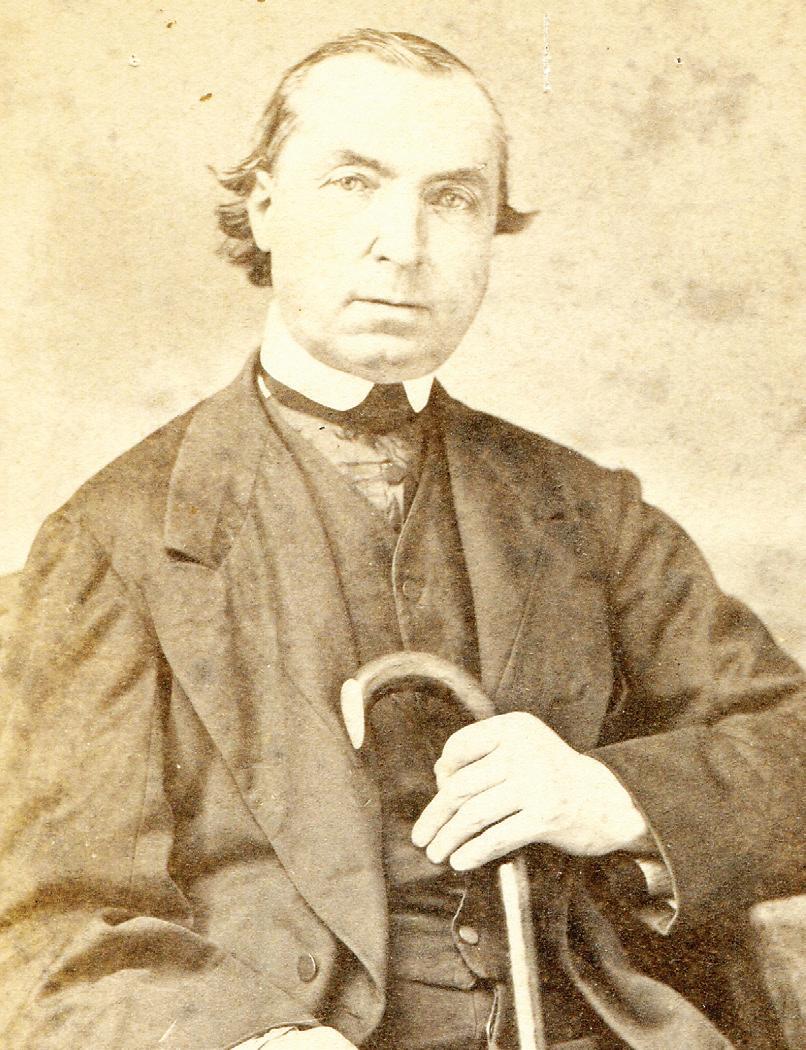
Rome would desire the approval of the Archbishop of Baltimore; the mother see of the U.S., to complete the process. Back in Richmond, Bishop Gibbons was greatly opposed to losing a young, talented priest from his diocese, but in the end acquiesced.


(Above) Bishop Francis August Janssens was appointed fourth Bishop of Natchez in 1881 by Pope Leo XIII. He served the diocese until 1888, when he was appointed Archbishop of New Orleans. (Inset) Msgr. Mathurin Grignon served under four bishops and served St. Mary Cathedral in Natchez (now Basilica) for over 37 years. (Photos from archives)
In a letter dated March 13, 1873, Gibbons wrote to Elder of his approval of the appointment saying:
“You will rejoice to learn that I withdraw my objections, agreeing to part with Father J. on condition that a worthy priest to succeed him should arrive in Richmond before the future rector would leave.
“The loss of this good priest will, I fear, be a serious embarrassment to me. He is my factotum. I have unbounded confidence in his judgment, and a high appreciation of his solid, healthy piety. He is possessed of great calmness of character, and has, I think, sufficient firmness for the responsible situation for which he is destined.
“He lacks age which time will supply and has no physical strength to spare. I have no hesitation in strongly recommending him for the office though I will part with him with a heavy heart.”
In August of 1873, Janssens still had not left for Louvain and in fact he never did. Four years later in 1877 when Bishop Gibbons was elevated to the Mother See in Baltimore, Janssens again became administrator for the Diocese of Richmond.
When Natchez became vacant in 1880 due to Elder becoming Archbishop of Cincinnati, Janssens name was already on the minds of those in the right places and soon he was named the Fourth Bishop of Natchez by Pope Leo XIII.
Next time we will look at Bishop Janssens consecration and arrival in his new diocese. The descriptions of these events are quite rich.
(Mary Woodward is Chancellor and Archivist for the Diocese of Jackson.)
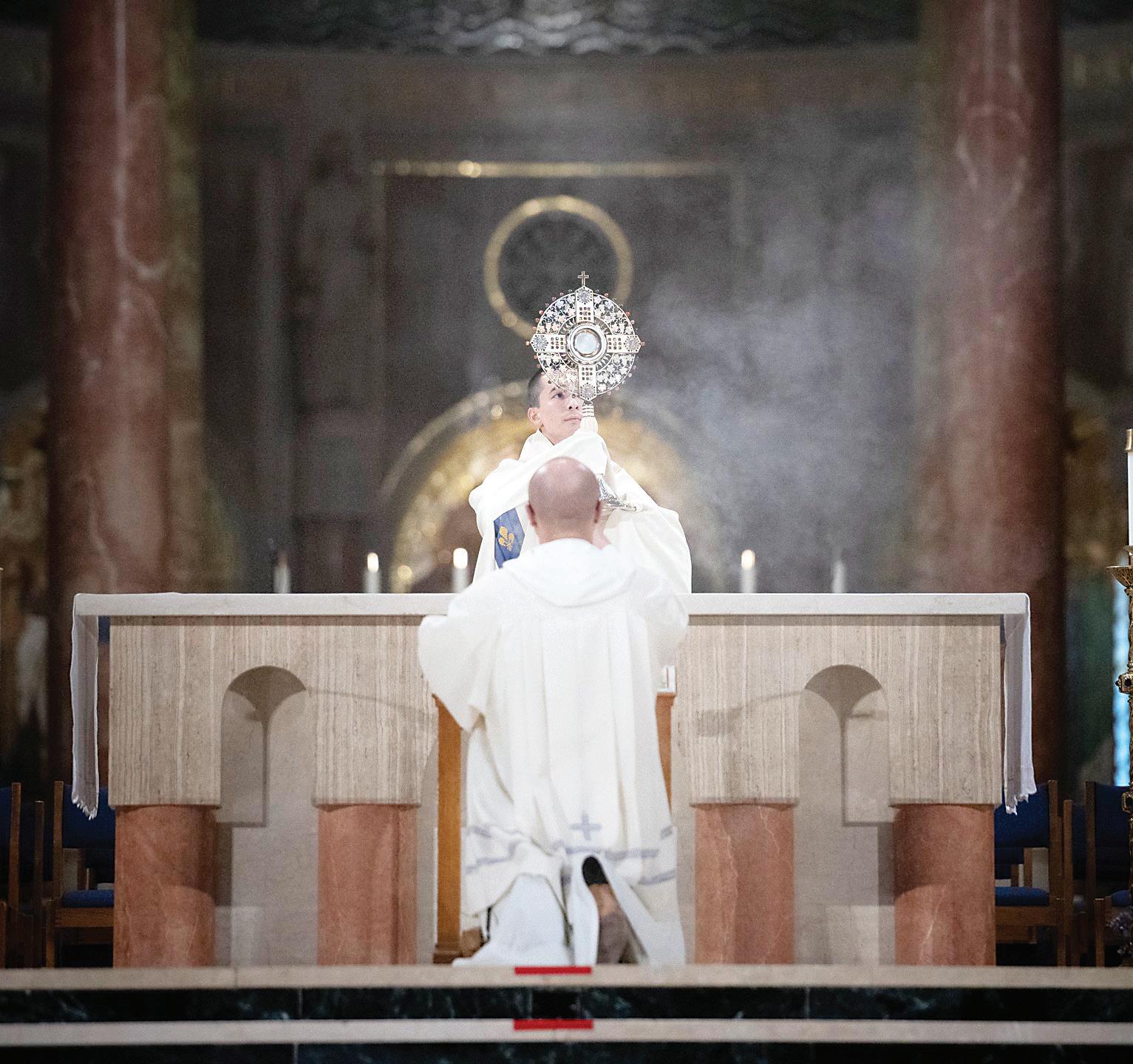
WASHINGTON (OSV News) – Thousands of pilgrims from across the country gathered at the Basilica of the National Shrine of the Immaculate Conception in Washington Sept. 28 to honor Mary, the Mother of God, and her gift of the rosary. “I am entirely yours, Mary, I am entirely yours,” the crowd sang in Latin as the second annual Dominican Rosary Pilgrimage opened with a procession of a statue of Mary, Queen of the Most Holy Rosary. “All that I have, Mother of Christ, all that I have is yours.” More than 3,000 people registered for the free, daylong pilgrimage celebrating the rosary hosted by the Dominican Friars of the Province of St. Joseph and their local charters of the Confraternity of the Most Holy Rosary, a spiritual association dedicated to the rosary. Dominican friars and sisters dotted a diverse crowd of men and women, young and old, individuals and families of di erent cultures and backgrounds. The event at the basilica, the largest Roman Catholic church in North America, included preaching, adoration, confession, book signings, a recitation of the rosary, enrollment in the confraternity, Mass and an evening concert with the Hillbilly Thomists, a bluegrass band of Dominican friars. Founded in 1216 by St. Dominic de Guzmán, the Dominican Order, also known as the Order of Preachers, has a special relationship with the rosary: According to tradition, Mary appeared to St. Dominic, entrusting the rosary’s promotion to him.
WASHINGTON (OSV News) – Three years after being approved by the U.S. Catholic bishops, updates to the ritual texts for distribution of holy Communion outside of Mass and for Eucharistic adoration will take e ect. The revised version of “Holy Communion and Worship of the Eucharistic Mystery outside Mass” will be implemented on the First Sunday of Advent, Dec. 1, 2024. The U.S. Conference of Catholic Bishops had signed o on the fresh texts in 2021, with the revisions reviewed by the USCCB’s Secretariat for Divine Worship and confirmed by the Vatican in March 2023. Father David R. Price, associate
director of the USCCB’s Secretariat of Divine Worship, told OSV News that “the main thing to keep in mind” regarding the revisions is that “this is a new translation of the ritual book that was given in Latin in the 1970s – so it’s a new translation, it’s not a new ritual book per se.” He emphasized that “the discipline of distribution of holy Communion outside Mass that is in place now is not changing.” The new translation “should hopefully be a way for people to continue to grow and deepen in their faith and to have a sense of unity with the universal church, in that we are praying with words in English that are similar, that are the same in meaning, as words that people are praying these same prayers in other languages – and that the translations are consistent in their meaning between these di erent languages,” said Father Price. “And that shows the universality of the church.”
VATICAN CITY (CNS) – Following an investigation into an influential Peru-based Catholic movement that has expanded across Latin America and the United States, Pope Francis has expelled 10 members from its ranks for physical and spiritual abuse. The group, Sodalitium Christianae Vitae, which operates in seven Latin American countries and has communities in the archdioceses of Denver and Philadelphia, was subject to a Vatican investigation in 2023 for alleged abuses. In a letter from the apostolic nunciature in Peru posted on the Peruvian bishops’ conference website Sept. 25, the Vatican announced the expulsion of the 10 members, including the former superior general, a retired archbishop and three other priests. The 68-year-old Peruvian Archbishop José Antonio Eguren of Piura, the highest-ranking expelled member, resigned from leading his archdiocese in April, eight years shy of the mandatory retirement age for bishops, amid an investigation into Sodalitium. The forms of abuse listed in the Vatican letter include: physical abuse “including sadism and violence,” deploying tactics to “break the will of subordinates,” spiritual abuse, abuse of authority including the cover-up of crimes and abuse in the administration of church goods. “Abuse in the exer-
cise of the apostolate of journalism” was also cited as a form of abuse committed; the list of those expelled included Peruvian journalist Alejandro Bermudez, founder and former executive director of Catholic News Agency, which is now owned by EWTN.
VATICAN CITY (CNS) – Calling St. John Paul II “one of the men who most shaped the last century,” Pope Francis encouraged Catholics to get to know him better, especially through what he did and wrote before being elected pope Oct. 16, 1978. “Saint John Paul II, despite the time that has passed since his pontificate, continues to be a source of inspiration and draws people to Christ through his way of life, the depth of his teachings, and his ability to connect with the lives of people,” Pope Francis wrote in the introduction to a book titled, “The Goal is Happiness.” Published in Italian, the book o ers 366 short passages from St. John Paul’s writings, “most of them unpublished outside of Poland, and some even unpublished within Poland,” Pope Francis noted in the introduction, which was translated into English and posted on Vatican News Sept. 26.
MEXICO CITY (OSV News) – Six migrants were killed after soldiers shot at a vehicle evading a military checkpoint in Mexico’s southern Chiapas state – a tragedy condemned by Mexico’s bishops as “the disproportionate use of lethal force on the part of agents of the state.” The Mexican bishops’ conference’s migrant ministry expressed solidarity with the victims and called for a “serious, impartial and investigation” of the shooting. A green truck carrying 33 migrants failed to stop at a checkpoint roughly 50 miles from the Guatemala border, at 8:50 p.m. on Oct. 1, drawing fire from two soldiers, according to an army statement the following day. Six migrants were killed in the incident while 10 were injured and 17 escaped unharmed. The migrants hailed from Nepal, Pakistan, India, Saudi Arabia, Egypt and Cuba. The army said two soldiers opened fire on the vehicle, which was traveling at high-speed and taking evasive actions. It added that two other trucks, “similar to those used by criminal groups in the region,” were following behind. “Military personnel reported hearing shots, so two (soldiers) fired their weapons, stopping one of the flatbed trucks,” the statement said. A collective of human rights and migration organizations sponsored by the Jesuit-run Iberoamerican University condemned the army’s actions, along with the Mexican government’s militarized response to migration enforcement. The stepped-up enforcement ahead of the November U.S. election has coincided with the Biden administration placing restrictions on asylum-seekers.


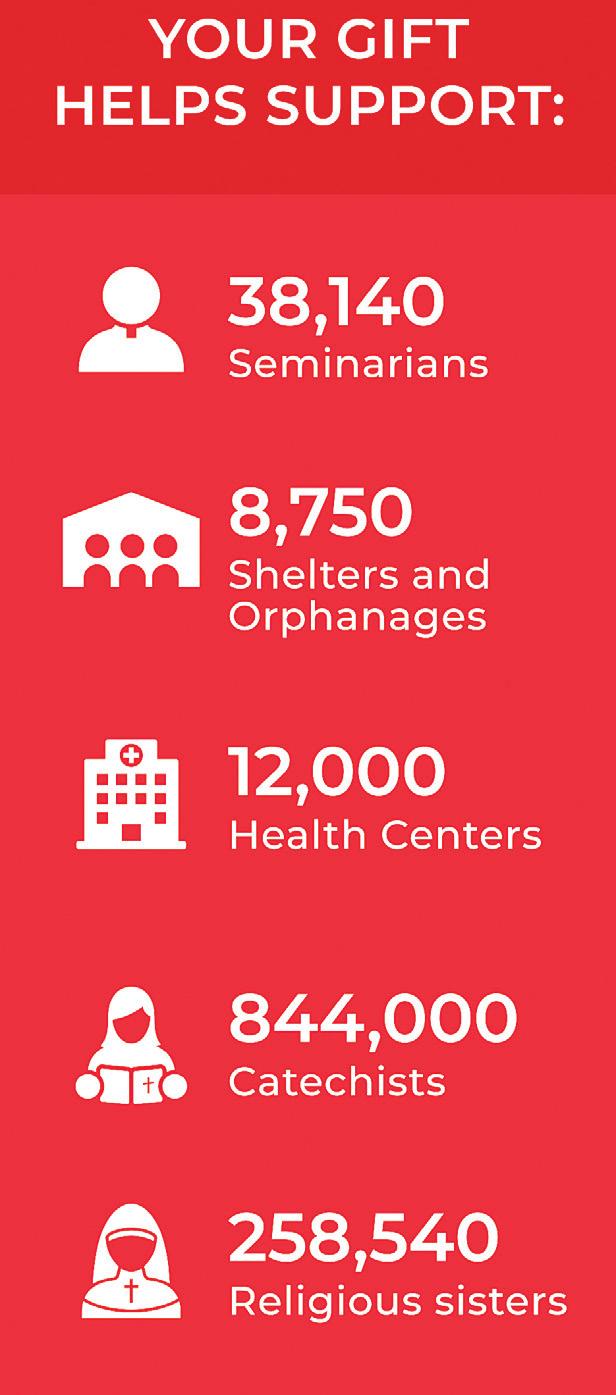


By sister alies therese
Take a peek at Psalm 77 where the psalmist spends the first half lamenting his (and the community’s) miserable situation (1-10). A translation I like in The Message (Peterson, 2003) says, “I found myself in trouble and went looking for my Lord; my life was an open wound that wouldn’t heal … Will the Lord walk off and leave us for good? Will he never smile again...? ‘Just my luck,’ I said, ‘The High God goes out of business just the moment I need Him.’” What could bring something good out of this? “You can never learn that Christ is all you need until Christ is all you have,” Corrie ten Boom reminds us.
Later the psalmist brings another point of view … something beautiful happens beginning at 11 to the end, when he changes his focus, ceases the lamentation and focus on himself, and turns to God. In Exodus language, he prays, “Once again I’ll go over what God has done, I’ll ponder all the things You’ve accomplished and give a long, loving look at Your acts … You pulled your people out of the worst kind of trouble…” I think this is something about salvation … and the saving job is God’s. That’s right where God wants you.
How does that salvation look? What is one practical aspect? Well, Pope Francis on Holy Thursday in 2014 said, “Am I really willing to serve and help others? This sign is a caress of Jesus.” This psalmist and his community in turning to God not only to
themselves, discovered what Paul was trying to get over to the Ephesians. While pondering the darkness and the sinfulness of humanity, Paul also wants them to learn that God has us right where we belong … because that is where He wants to ‘shower us with grace and kindness’ and to teach us that this saving business is His gift. The fact that it is God’s gift is traced back to the covenants of the past and the promises to Israel … God created ‘a new kind of human being, a fresh start for everybody.’ And that’s how we are to act toward one another. We are to be that caress of Jesus in the lives of friends and foes. Catherine of Siena adds, “To the servant of God every place is the right place, and every time is the right time.” Every opportunity that comes our way ‘works out’ this salvation we’ve been given. Our learning to share allows us challenges and opportunities to gift others with those precious gifts of God. They often look like fruits of the spirit … patience, kindness, joy, gentleness, etc.
My experience of these fruits is usually where I am the weakest, or when we are most challenged, where we fear. In the April 4, 2014, Collect, we hear: “O God, who has prepared fitting helps for us in our weakness, grant we pray that we may receive their healing effects with joy and reflect them in a holy way of life.” This holy way of life is mirrored in the blessed life of Jesus, where we use the gift of salvation He has given, for others. Psalm 77 also reminds us, “O God, your way is holy, no god is great like God.”
By Jaymie stuart Wolfe
“Choose your battles” is generally good advice. It’s wise to acknowledge that not every fight can be won; that we may not have the resources to sustain a war on many fronts; that victory sometimes costs us more than we can afford. But if you’re born (or baptized) on the battlefield, things become more complicated. It’s hard to resist the urge to take up the cross and march like a crusader into every engagement, especially when we see the destruction around us, know the stakes are high and suspect we are outnumbered.
The practice of offering an abbreviated form of Pope Leo XIII’s prayer to St. Michael at the end of every Mass is, once again, widespread. And that’s a good thing, because if living our Catholic faith in today’s world could be summarized in a single word, “embattled” would be a strong contender.
And yet, God does not call any of us to go looking for a fight. That’s because we’re not often equipped to win a contest against an enemy that prowls around like a roaring lion, seeking someone to devour, (see 1 Pt 5:8). Perhaps more importantly, we also tend to forget that the battle God calls every one of us to engage in is a spiritual one, fought on the open fields of our hearts.
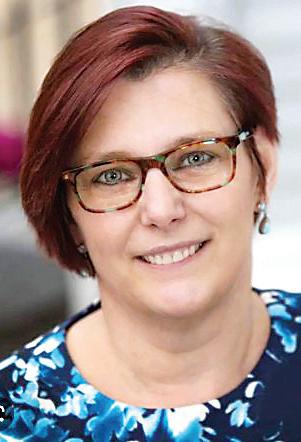
That is why the Catechism of the Catholic Church includes an entire section devoted to what it calls “The Battle of Prayer.” As the Catechism explains, “Prayer is both a gift of grace and a determined response on our part. It always presupposes effort.
The great figures of prayer…all teach us this: prayer is a battle. …The “spiritual battle” of the Christian’s new life is inseparable from the battle of prayer” (CCC 2725).
After we’ve abandoned mortal sin, after we’ve decided to follow Jesus wholeheartedly, prayer is most often where we falter. Prayer is the most sustained battle of the Christian life. It is where our faith is both fed and tested. It is how our quest for salvation plays out. In prayer, we open our hearts
God has us right where He wants us and comments further in Ephesians: “You are no longer wandering exiles … the kingdom of faith is your home country. You’re no longer strangers or outsiders. You belong here.” (Peterson, 2003)
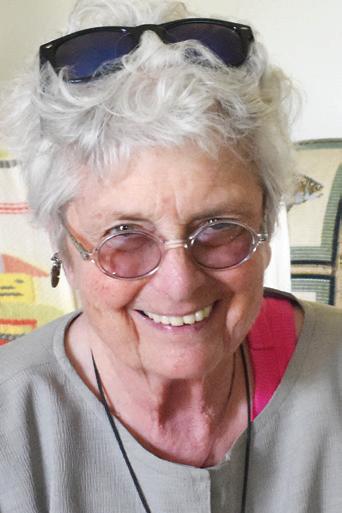
“For it is the will of our courteous Lord that we should be as much at home with Jesus as heart may think or soul desire. Julian of Norwich writes in Revelations. Our salvation, our saving, is about the grace that changes us into what God has in mind. We say to become the best version of ourselves … well, yes but what we want is to be the version God has in mind right where we are! Look at some of our October saints … Therese, Francis and Teresa.
“Christ wills that where He is we should be also, not only for eternity but already in time, which is eternity begun and still in progress,” so says Elizabeth of the Trinity. There is only one place to be … right where we belong in God. This means we belong in love and are motivated from that core to act as such.
Pope St. John Paul II clarifies, “Love is the constructive force for humanity’s every positive road … the future does not gather hope from violence, hatred or selfishness.” Our world and our country are full of the latter and it is our job to change things right where we are.
Blessings.
(Sister alies therese is a canonically vowed hermit with days formed around prayer and writing.)
to God. Through prayer, God opens his heart to us.
If we want to follow Christ, we must pray. And that is never easy. What is easy is the discouragement we face when we try and fail. Despite our best intentions, the daily Rosary or Mass easily become more like every other day. We skip time with God when we are pressed for time. And that makes us vulnerable to one of the enemy’s most effective traps: self-sufficiency.
Approaching life and all its challenges alone and on our own power separates us from the grace of perseverance and sets us up for failure. We know that we cannot live the life of Christ apart from Christ. And yet, that is precisely what many of us attempt to do.
But it’s also easy for us to get distracted; to allow the values of our world to get a foothold in our hearts. When that happens, prayer can seem like a waste of time, an empty exercise in futility, a font of false hope, or an escape from reality. In the cloud of the disappointment that descends when God does not give us everything we want, we struggle to carry on. We ask ourselves whether prayer makes any difference. And when we aren’t convinced that it does, we either give up or seek our fortunes in battles we were never called to fight.
But to be victorious in the battle of prayer, we must acquire and cultivate the virtues that, ironically, arise from prayer: humility, trust and perseverance. Humility teaches us not to be surprised by our own weaknesses. It considers how the distractions we face in prayer reveal our attachments to things other than God. Trust teaches us to rely completely on the Holy Spirit, the divine presence and power given to us in God’s time and in his way. Perseverance overcomes our laziness, but it also purifies our motivations and draws us into the love that makes all things possible.
In the great scheme of things, all the other battles we choose to fight serve only to distract us from the main event. Because prayer is what transforms and guides us, it is the only battle worth fighting, and the only one we must – by God’s grace and our effort – win.
(Jaymie Stuart Wolfe is a sinner, Catholic convert, freelance writer and editor, musician, speaker, pet-aholic, wife and mom of eight grown children, loving life in New Orleans.)
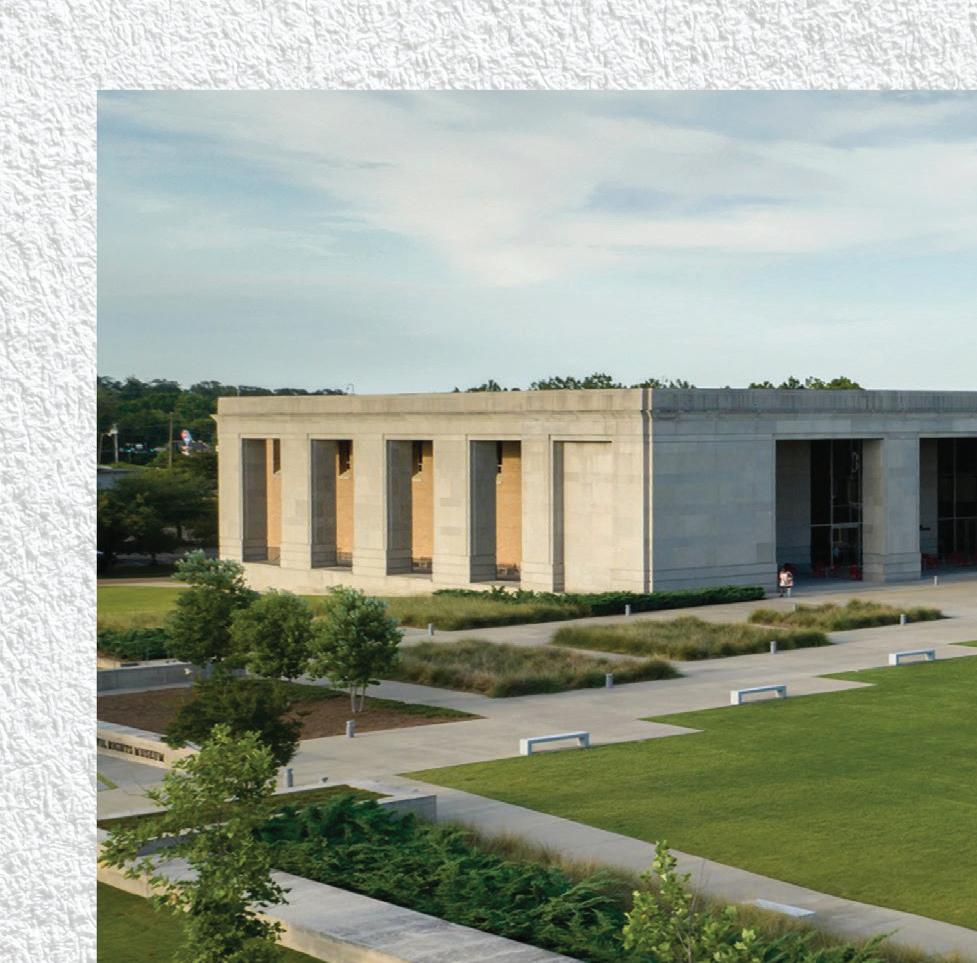
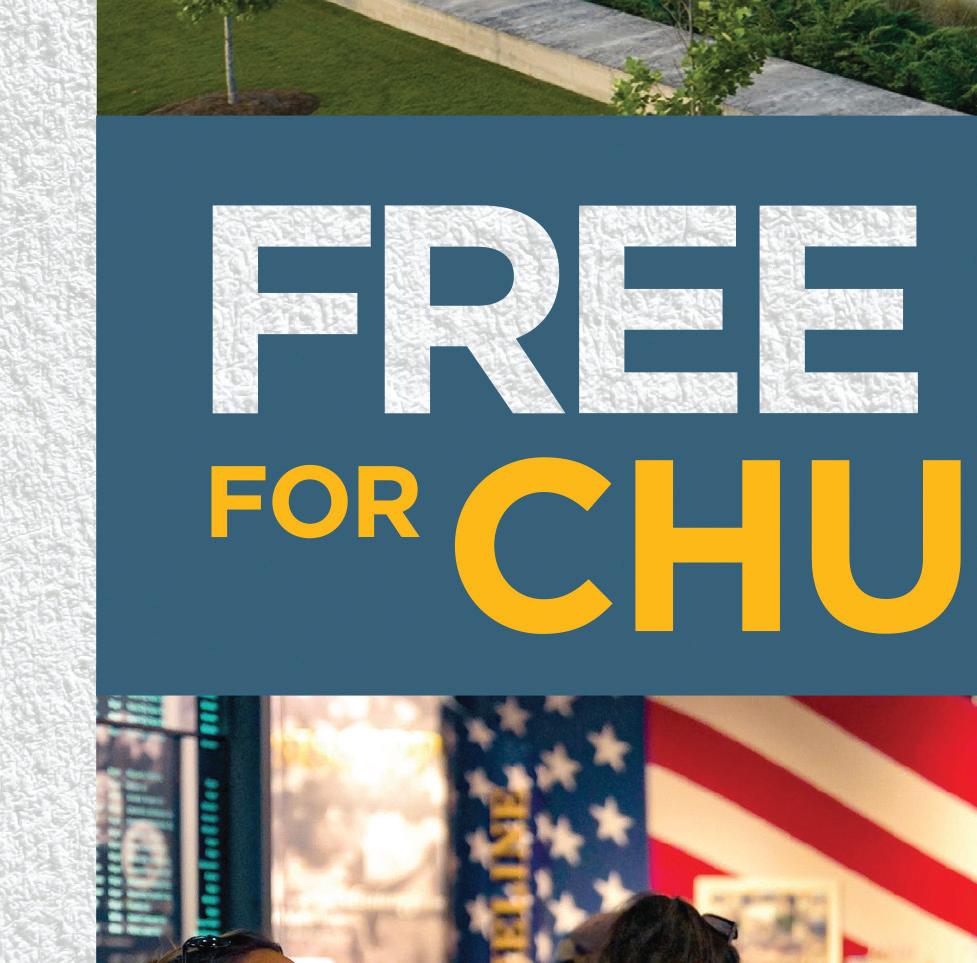

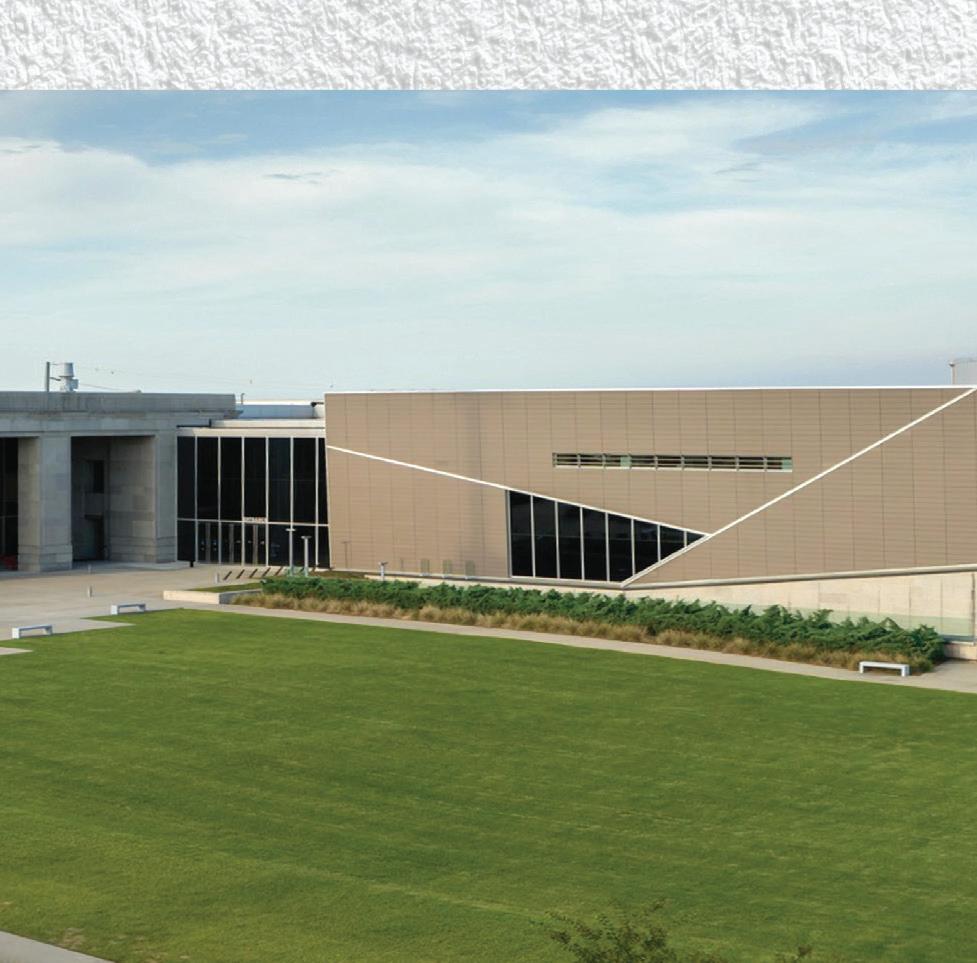




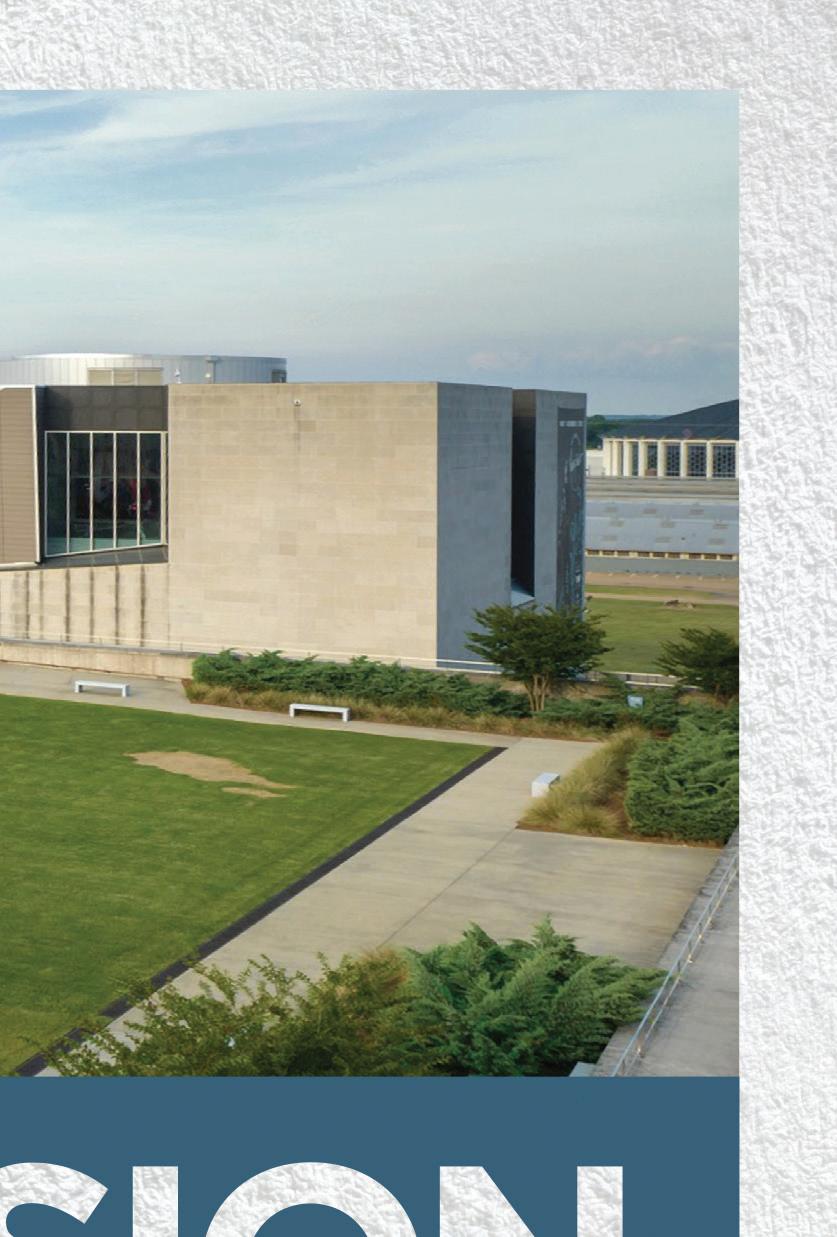
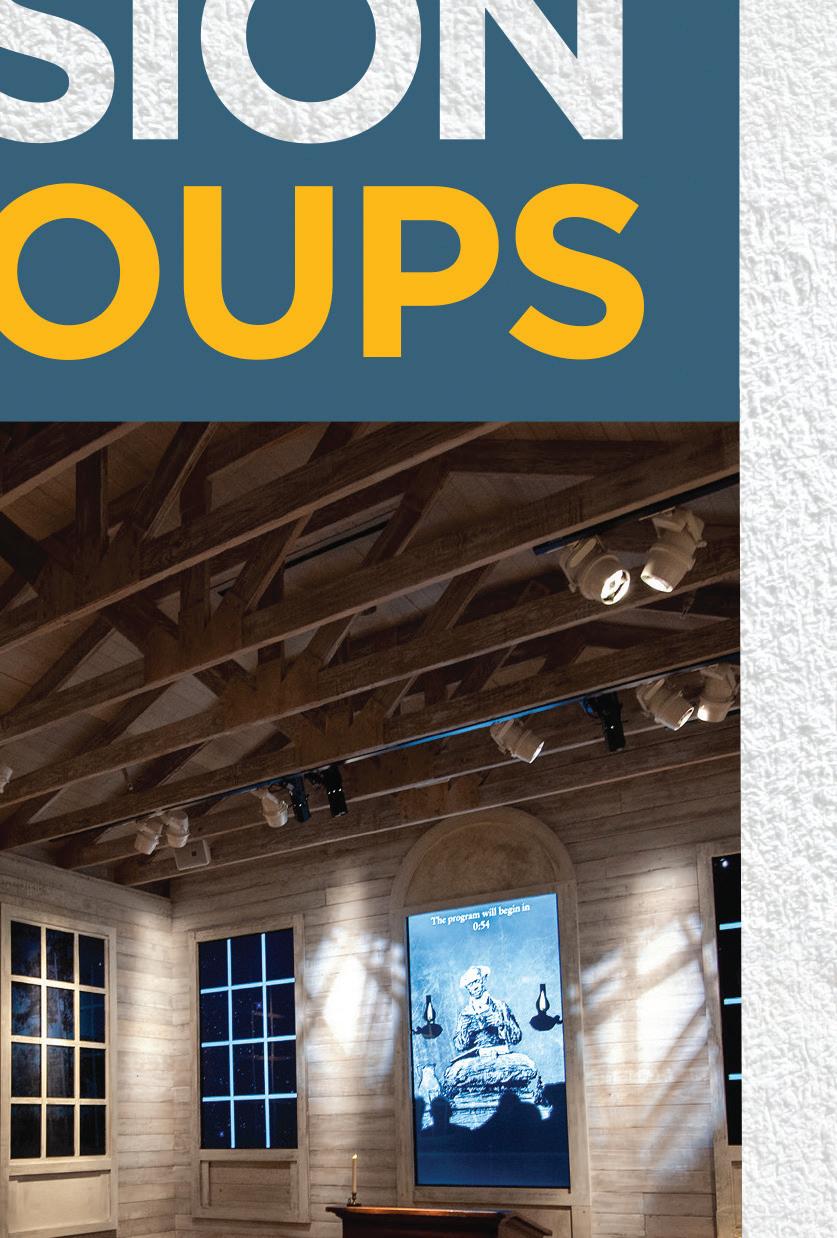

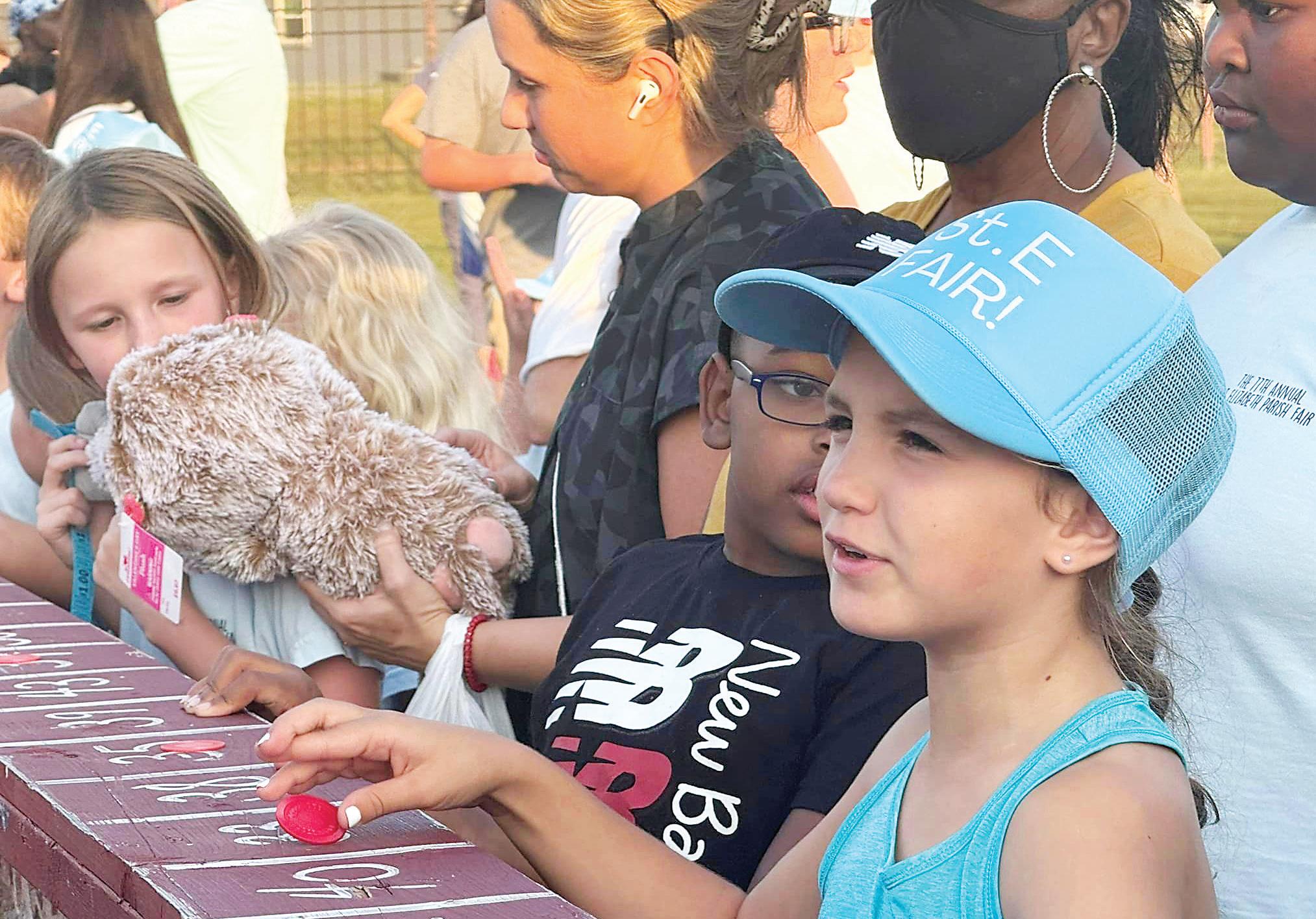
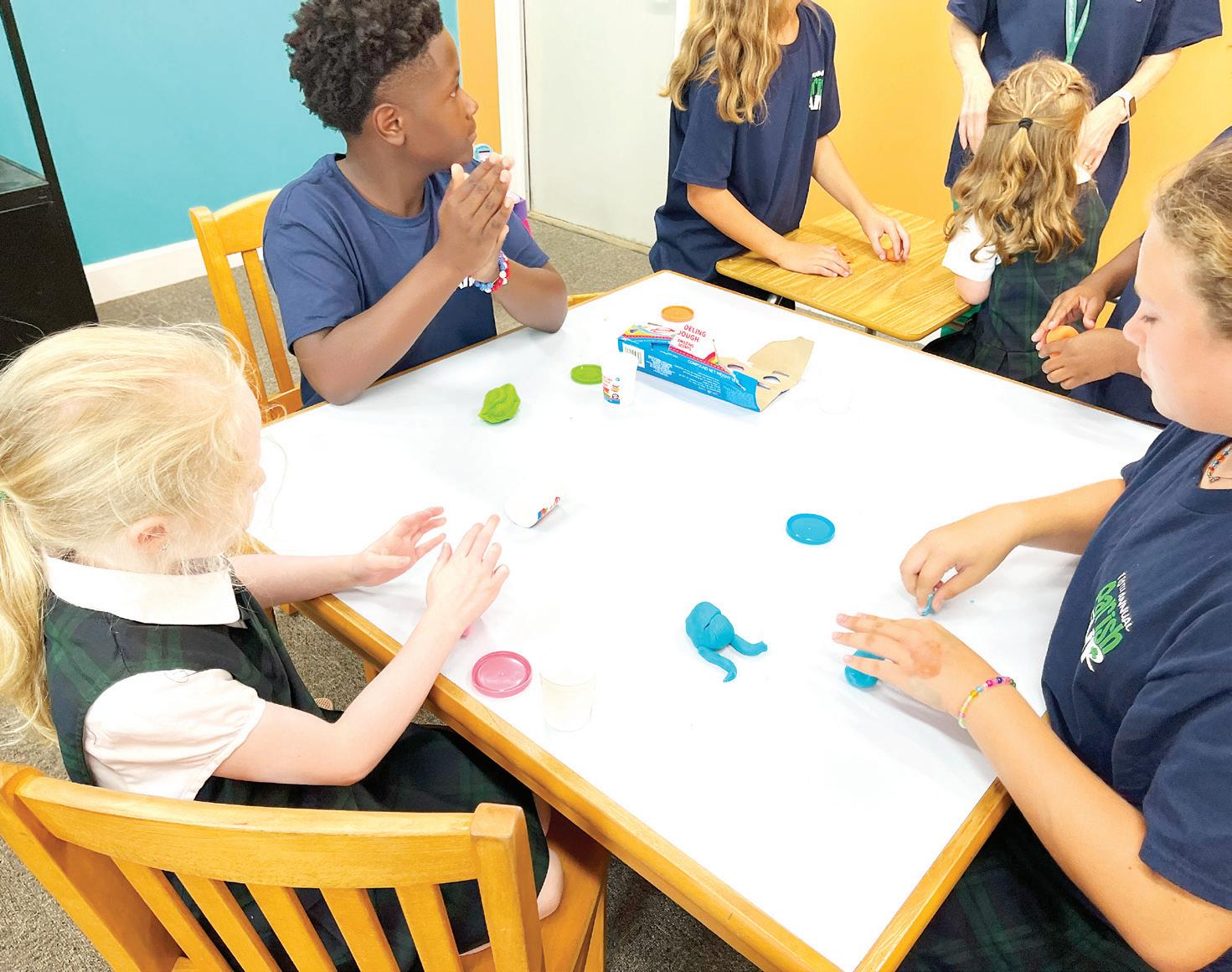


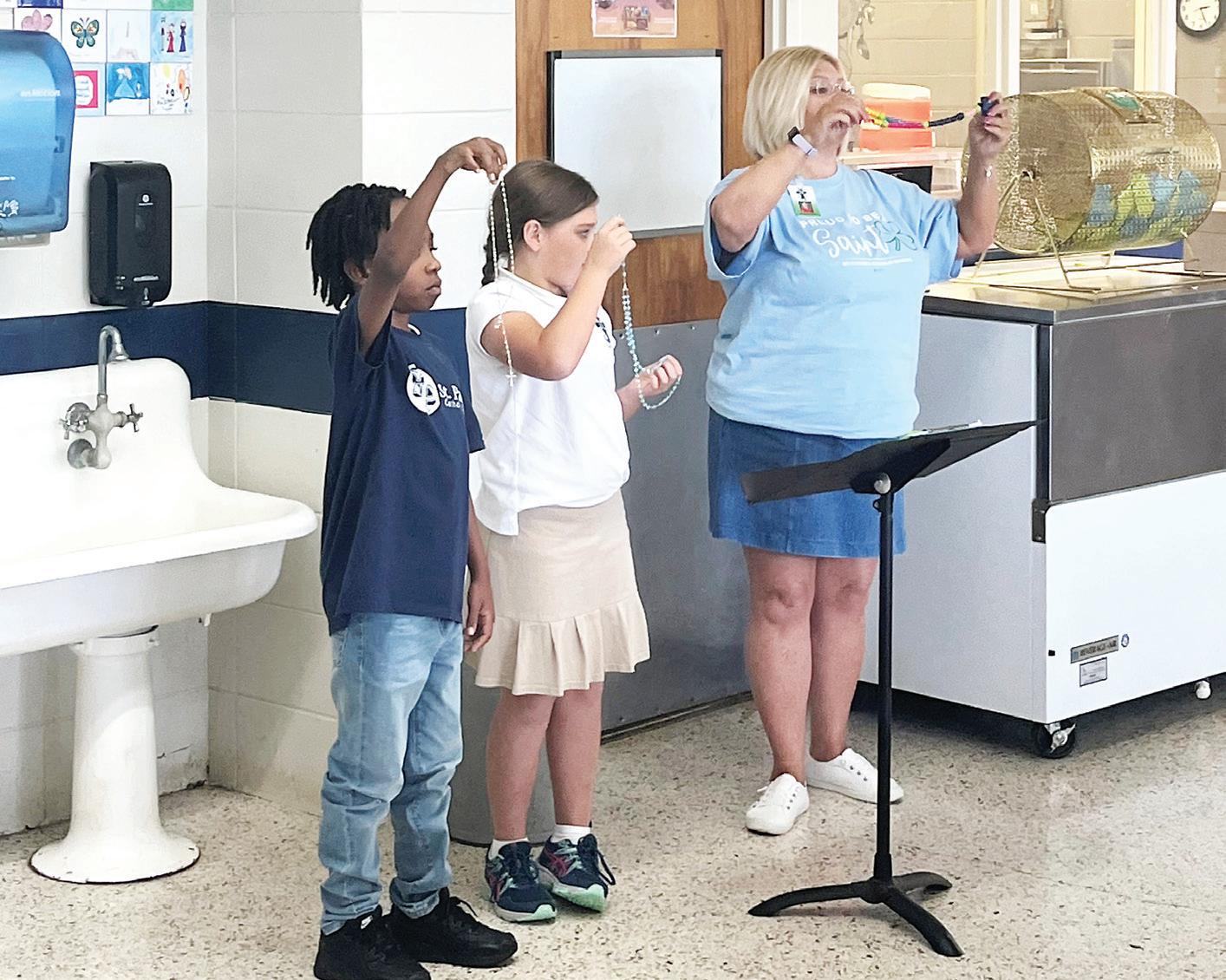
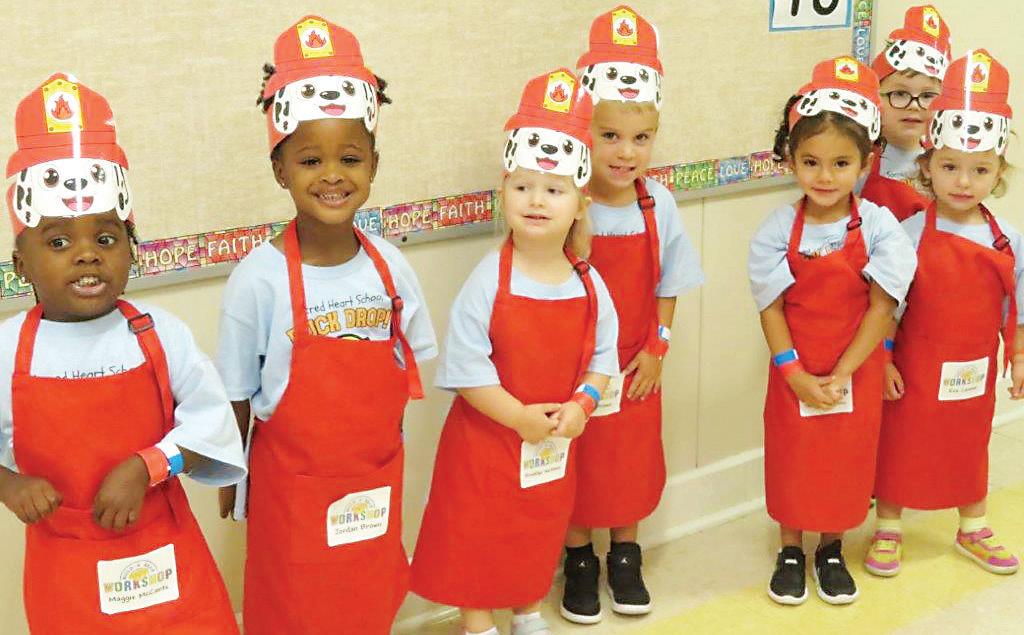




By Gina Christian (OSV News)
– Ahead of Respect Life Month, the prolife committee chair of the U.S. Conference of Catholic Bishops is urging “a revival of prayer and action” to end abortion and uphold the sanctity of human life.
A statement for the October observance, written by Bishop Michael F. Burbidge of Arlington, Virginia, was released by the USCCB Sept. 19 and posted to the website of the USCCB’s Respect Life Month initiative. The effort traces its origins to 1972, just prior to the U.S. Supreme Court rulings on Roe v. Wade and Doe v. Bolton, the two 1973 decisions that broadly legalized abortion.
In his message, Bishop Burbidge stressed that “Jesus, truly present in the Eucharist, gives us the fullness of life,” and “calls each of us to respect that gift of life in every human person.”
The bishop pointed to the 10th National Eucharistic Congress, held during July in Indianapolis as part of the National Eucharistic Revival, the U.S. bishops’ three-year effort to rekindle devotion to the real presence of Christ in the Eucharist.
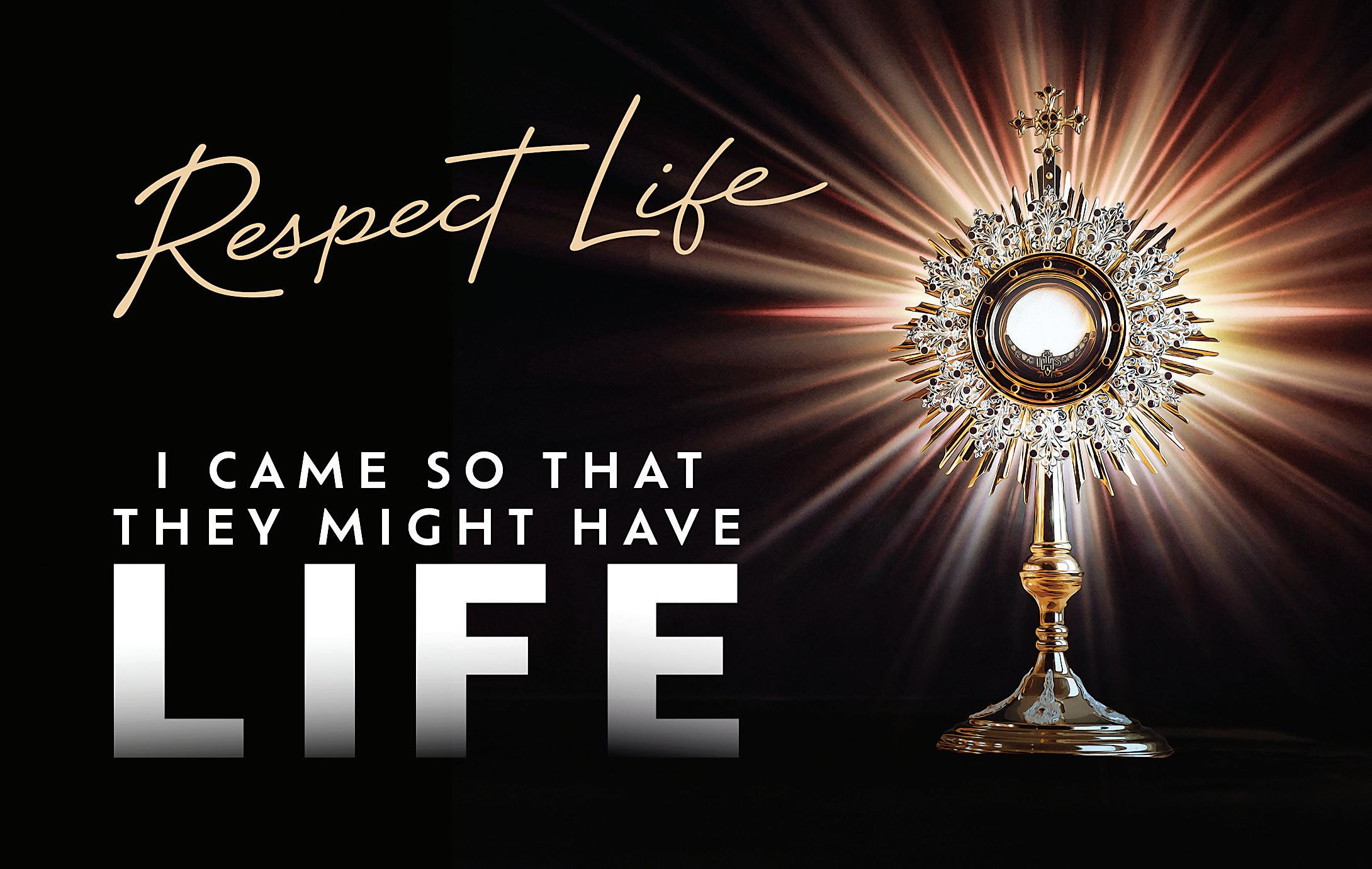
The congress and the Eucharistic processions leading up to it “involved hundreds of thousands of Catholics who will never be the same,” he said. “The revival continues, and is so needed, especially in our efforts to defend human life.”
He quoted a 2013 address by Pope Francis to Catholic medical professionals, in which the pope said that “every child who, rather than being born, is condemned unjustly to being aborted, bears the face of Jesus Christ, bears the face of the Lord, who even before he was born, and then just after birth, experienced the world’s rejection.”
However, “the law and millions of our brothers and sisters have yet to recognize this reality,” said Bishop Burbidge.
Despite the Supreme Court’s June 2022 overturning of Roe v. Wade and Doe v. Bolton, enabling elected officials “to reduce or end abortion … fifty years of virtually unlimited abortion has tragically created a national mindset where many Americans have become comfortable with some amount of abortion,” said Bishop Burbidge. “This allows the abortion industry to continue to provide any amount of abortion.”
Abortion rates actually rose or stayed at pre-Roe levels in the U.S. following the Dobbs decision, which overturned the Roe and Doe rulings.
Globally, there are a total of some 73.3 million abortions each year, according to the Guttmacher Institute – a number about 4 million greater than United Kingdom’s current population, and almost 15 million more than the United Nation’s 2019 crude death rate, or total number of deaths worldwide in a given year.
“Given this challenge, the U.S. bishops have affirmed that, while it is important to address all the ways in which human life is threatened, ‘abortion re-
mains our pre-eminent priority as it directly attacks our most vulnerable brothers and sisters, destroying more than a million lives each year in our country alone,’” said Bishop Burbidge, quoting a 2024 document by the U.S. Bishops on conscience formation and political responsibility for Catholics.
With the U.S. presidential election just weeks away, Bishop Burbidge asked Catholics in the U.S. to “renew our commitment to work for the legal protection of every human life, from conception to natural death, and to vote for candidates who will defend the life and dignity of the human person.”
In addition, he said, “we must call for policies that assist women and their children in need, while also continuing to help mothers in our own communities through local pregnancy help centers and our nationwide, parish-based initiative, Walking with Moms in Need.”
Faithful must “likewise continue to extend the hand of compassion to all who are suffering from participation in abortion,” highlighting the church’s abortion healing ministries, such as Project Rachel.
“Most importantly, we must rededicate ourselves to fervent prayer on behalf of life,” said Bishop Burbidge, who invited Catholics “to join me in a concerted effort of prayer between now and our national elections, by daily
praying our Respect Life Month, ‘Prayer for Life to Jesus in the Blessed Sacrament.’”
The text of the prayer, along with several resources for Respect Life Month, is available on the initiative’s website at https://www.respectlife.org/ respect-life-month.
(Gina Christian is a multimedia reporter for OSV News. Follow her on X (formerly Twitter) @GinaJesseReina.)
The Diocese of Jackson has launched a third-party reporting system that will enable all diocesan employees, volunteers and parishioners to anonymously (or named if preferred) make reports. Examples of this activity include fraud, misconduct, safety violations, harassment or substance abuse occurring at a Catholic parish, Catholic school or at the diocesan level. The system is operated by Lighthouse Services.
To make a report visit www.lighthouse-services.com/ jacksondiocese or call 888-830-0004 (English) or 800-2161288 (Spanish).
The Association of Priests of the Dioceses of Jackson and Biloxi provide a small pension to our retired priests. As you consider your estate plans, please remember these faithful servants by making a donation or leaving a bequest to the Association of Priests. Our parish priests dedicate their lives to caring for us, their flocks. Let us now care for them in their retirement. Donations can be made payable to the Association of Priests and can be mailed to: Diocese of Jackson, P.O. Box 22723, Jackson, MS 392252723